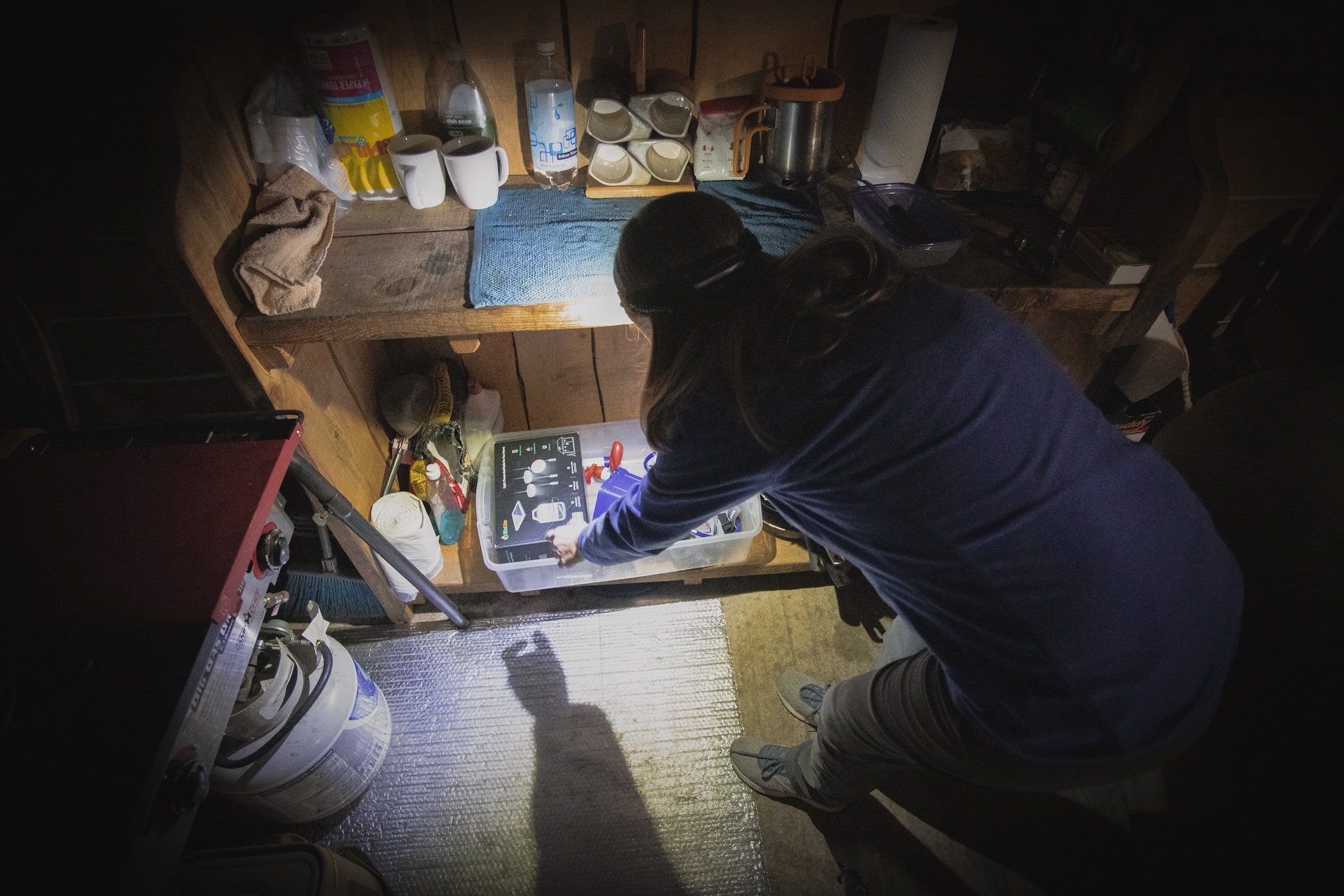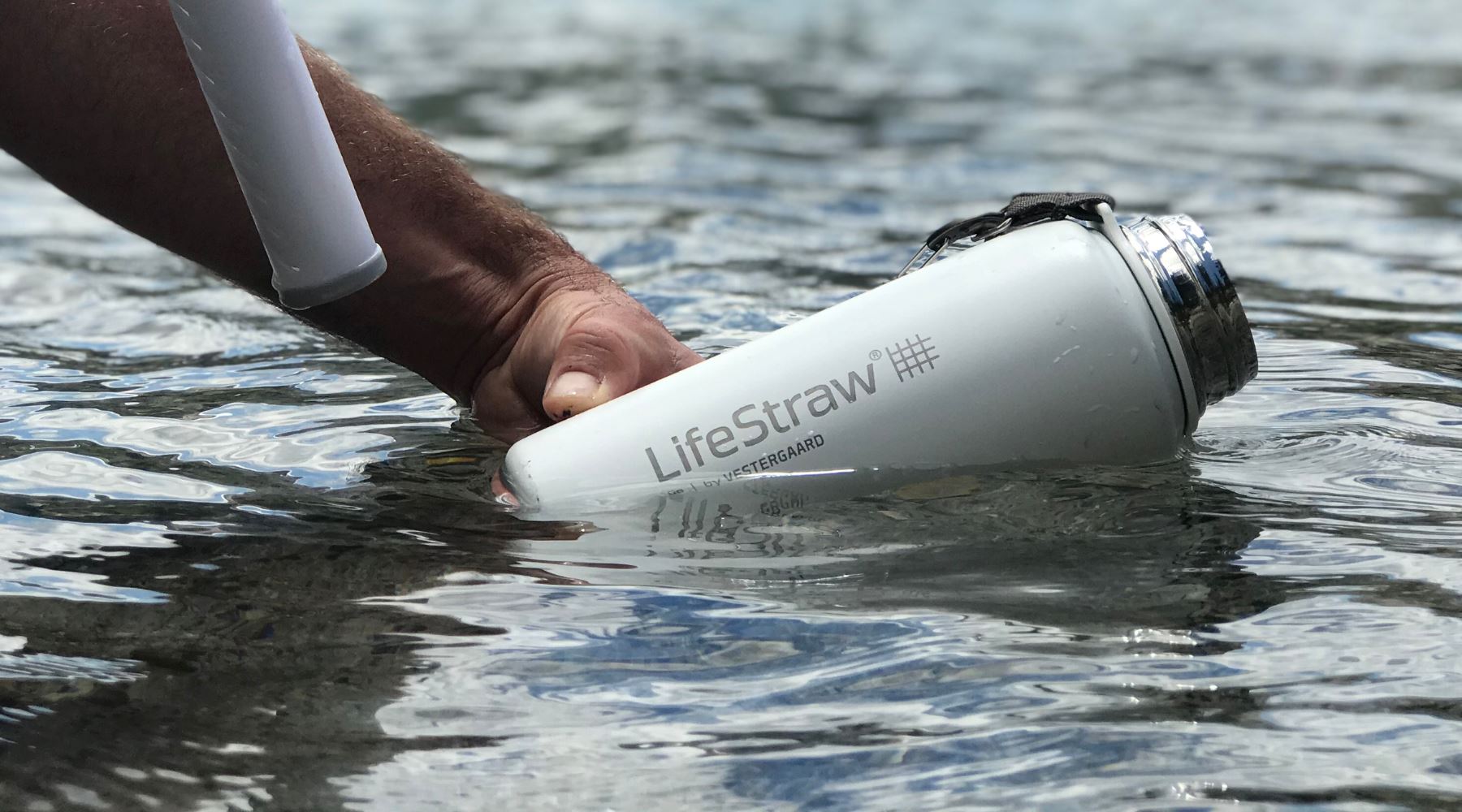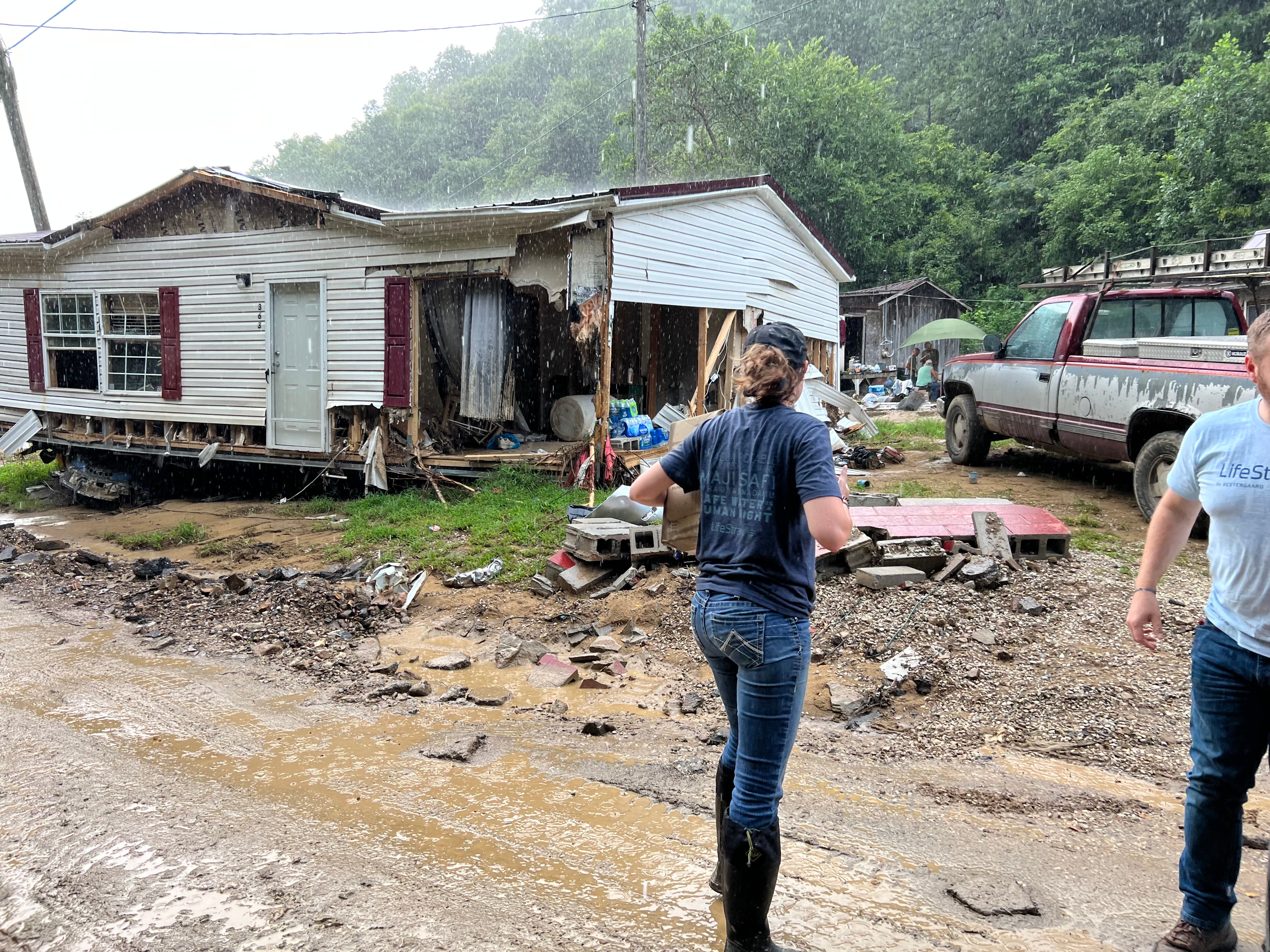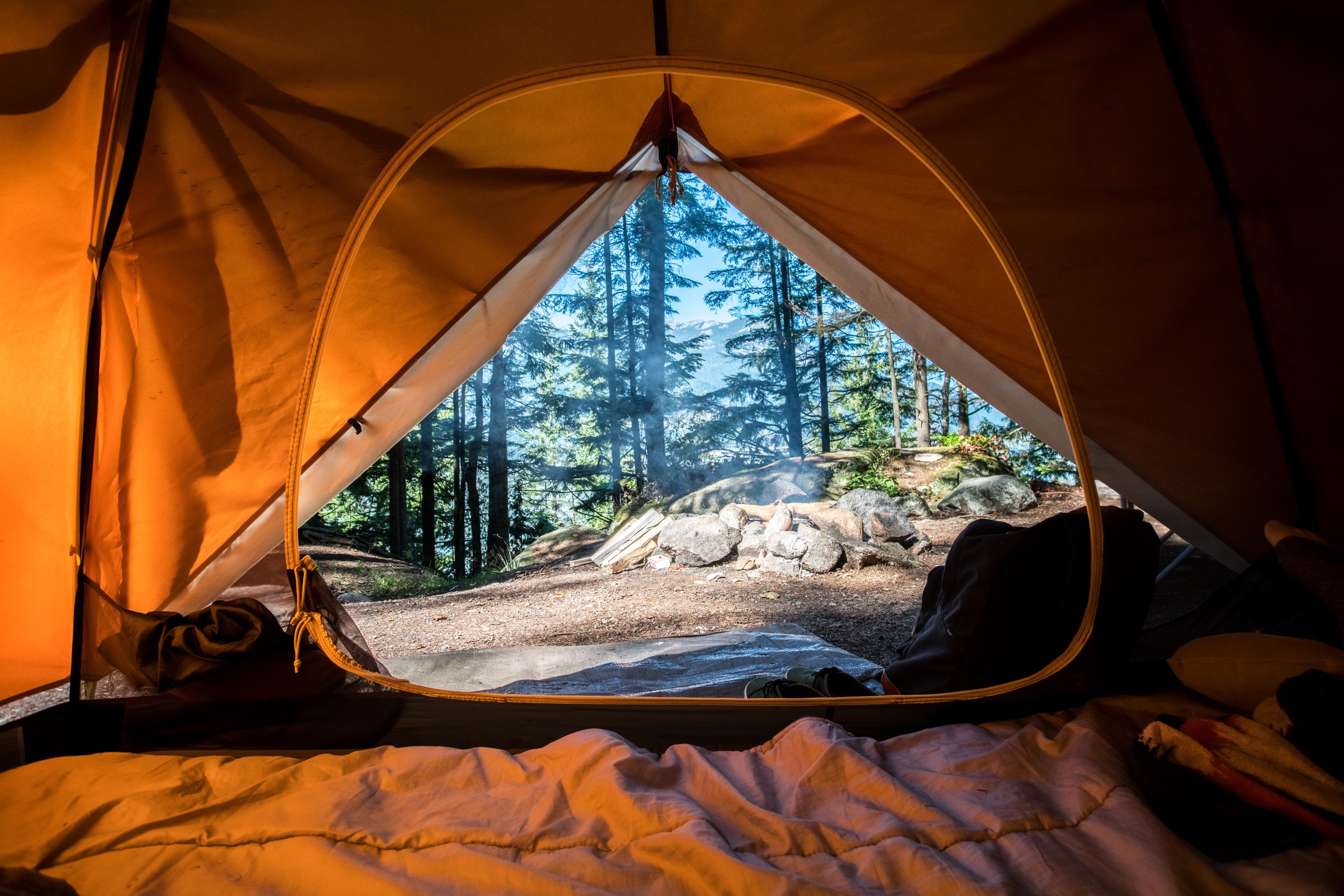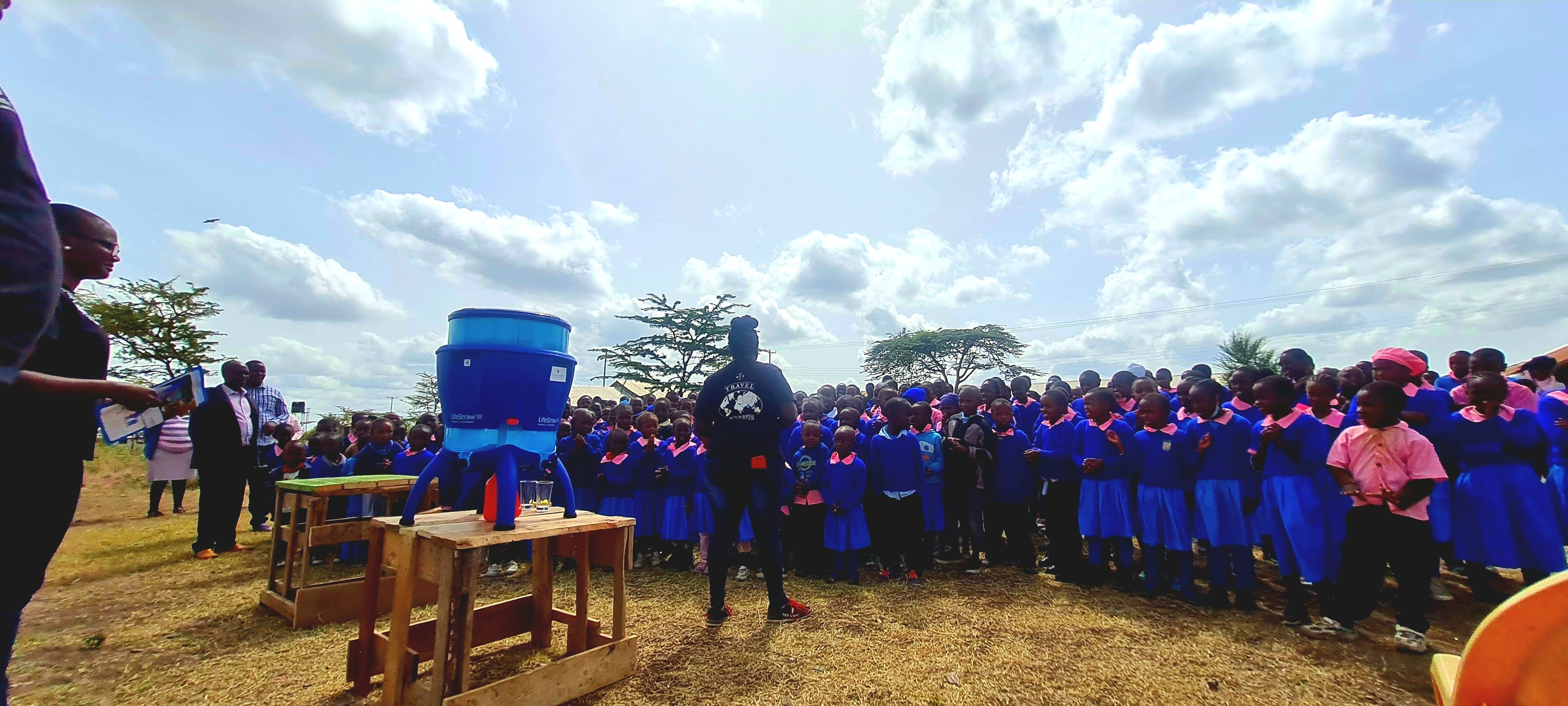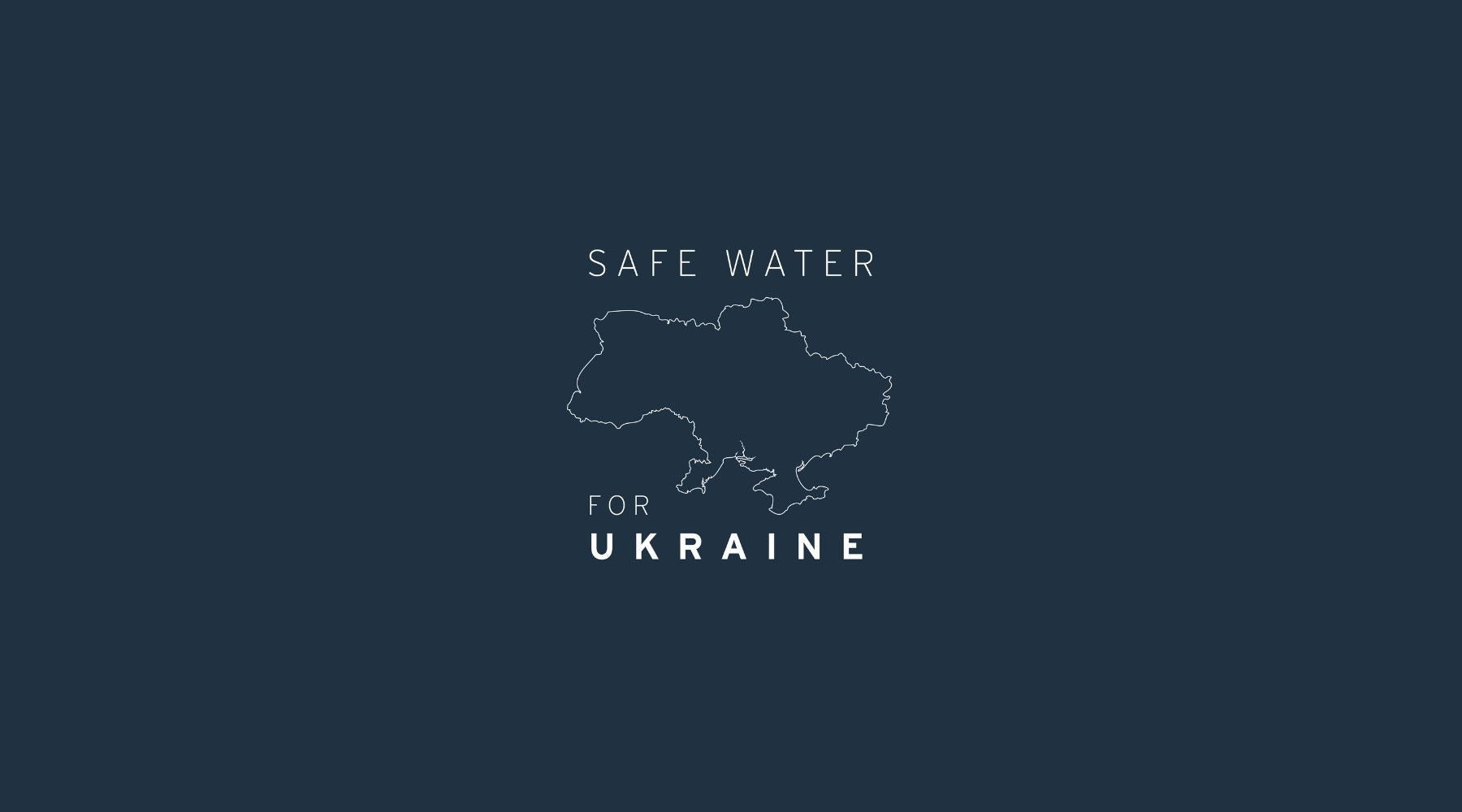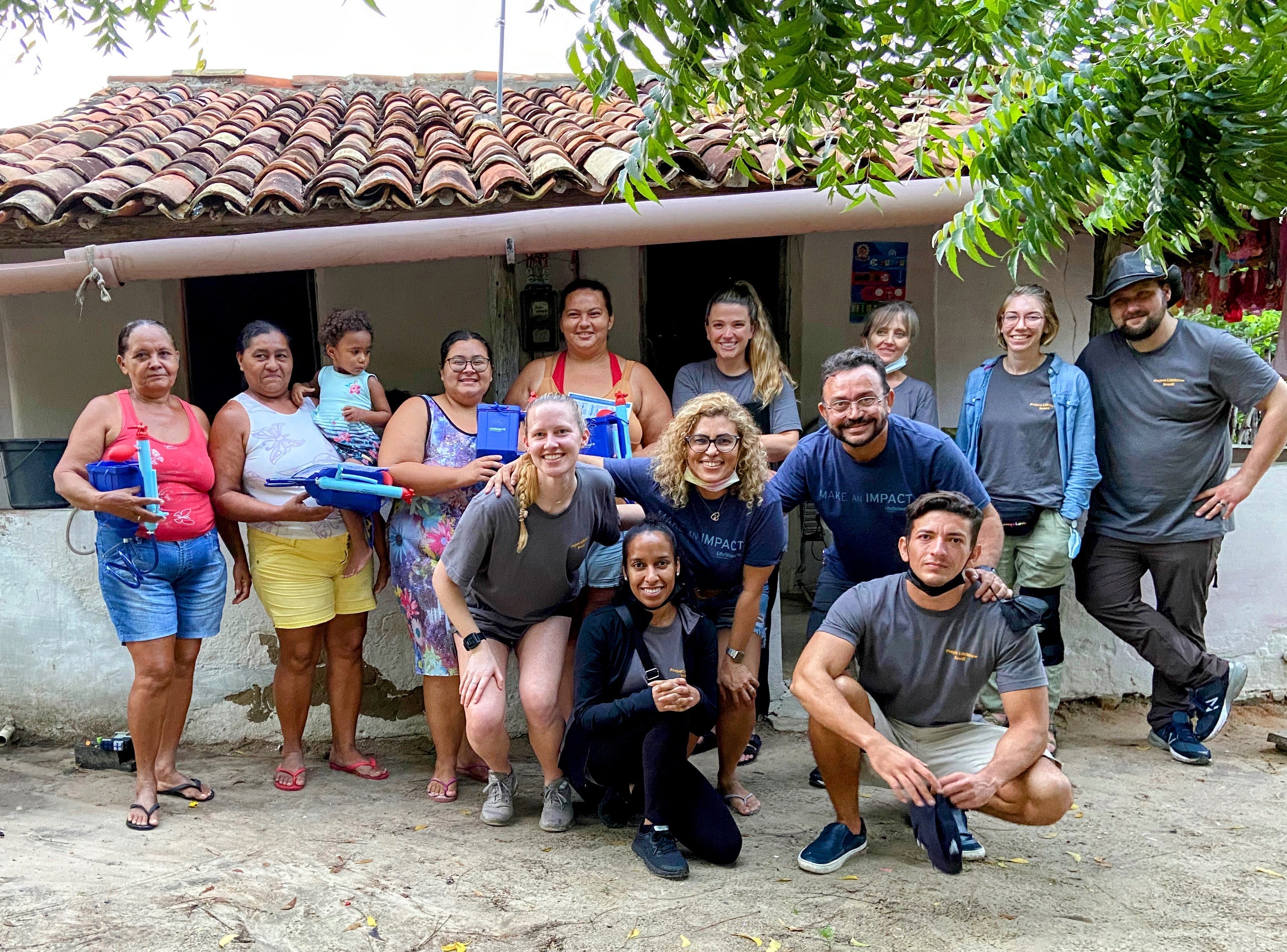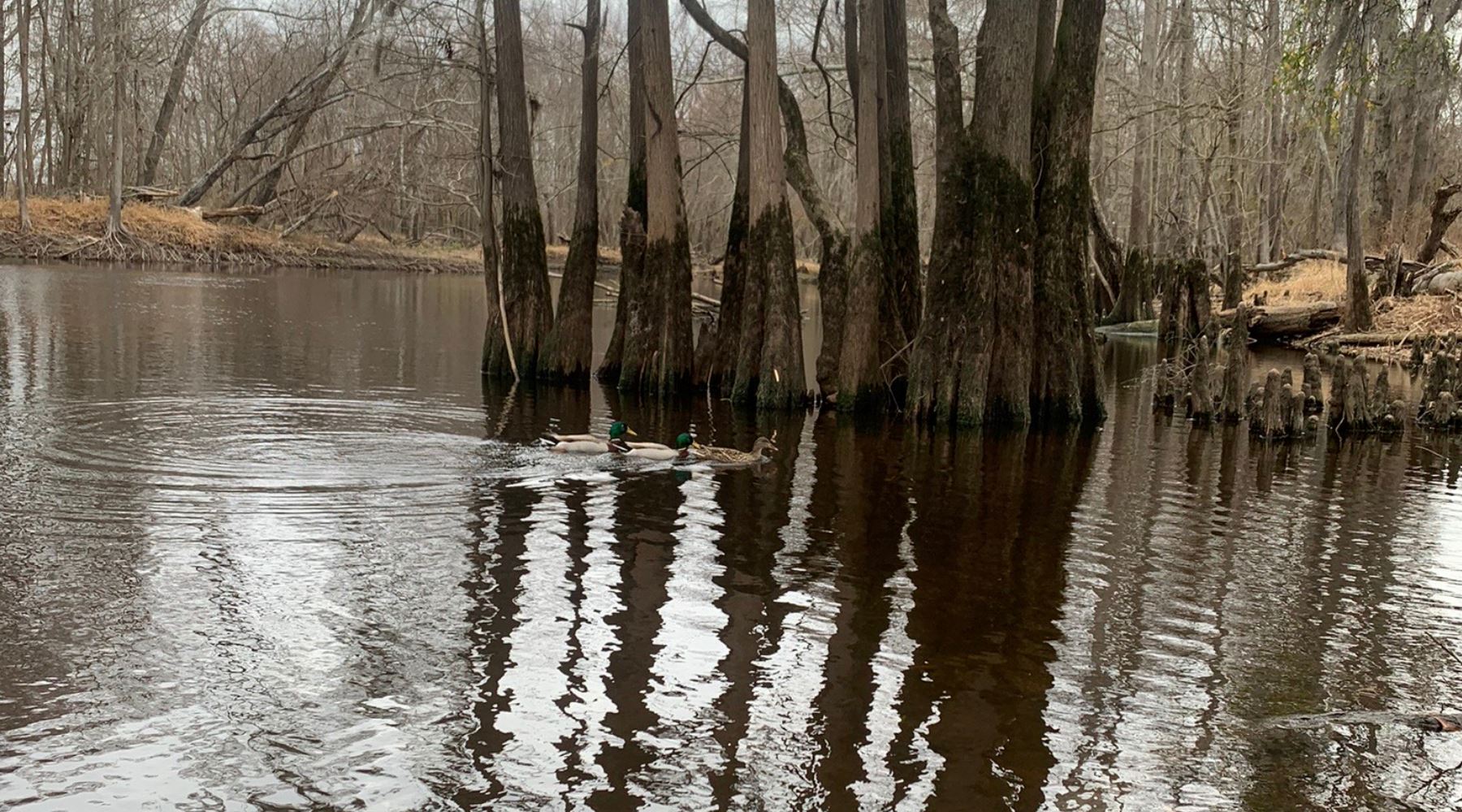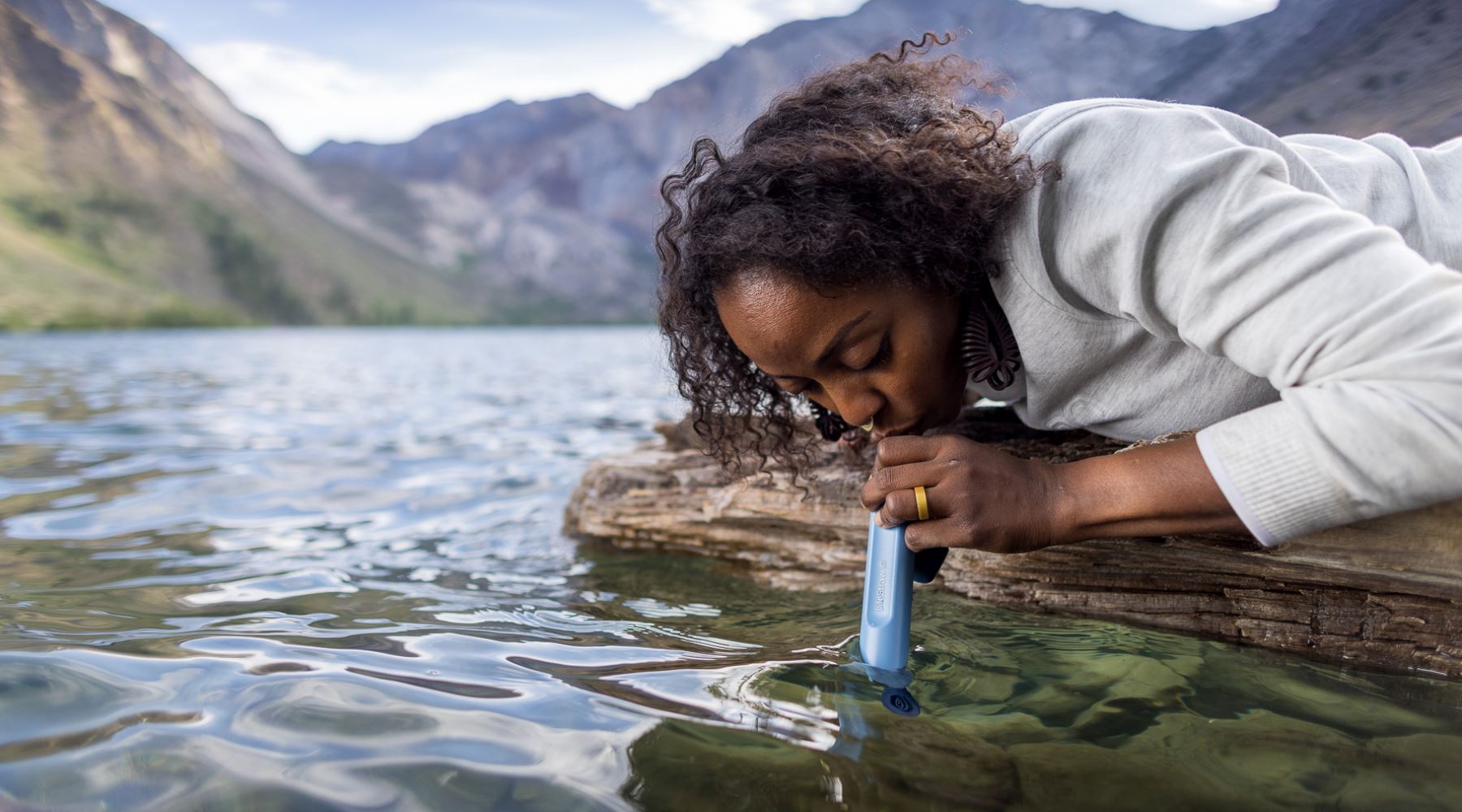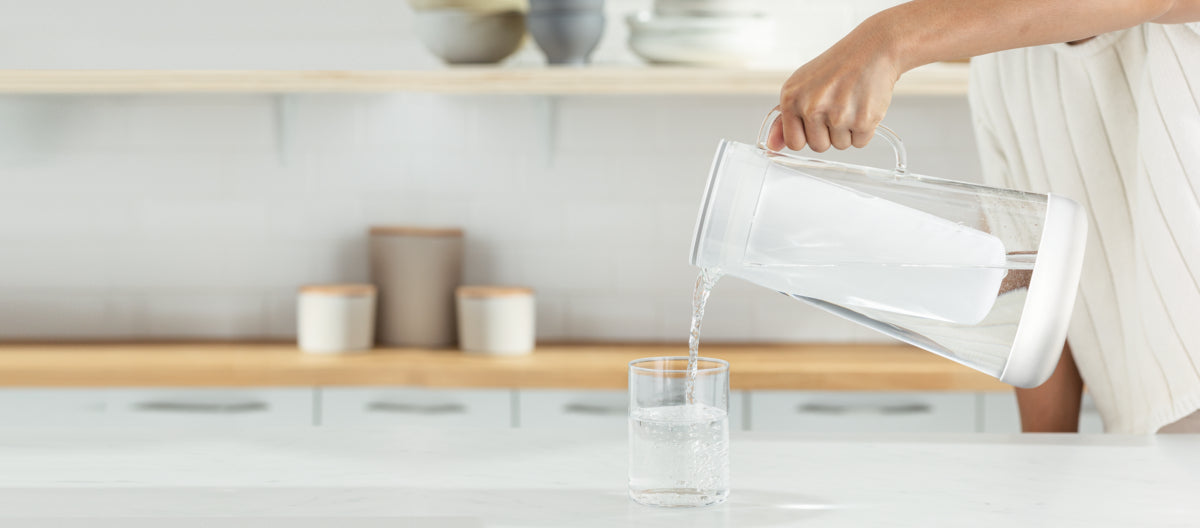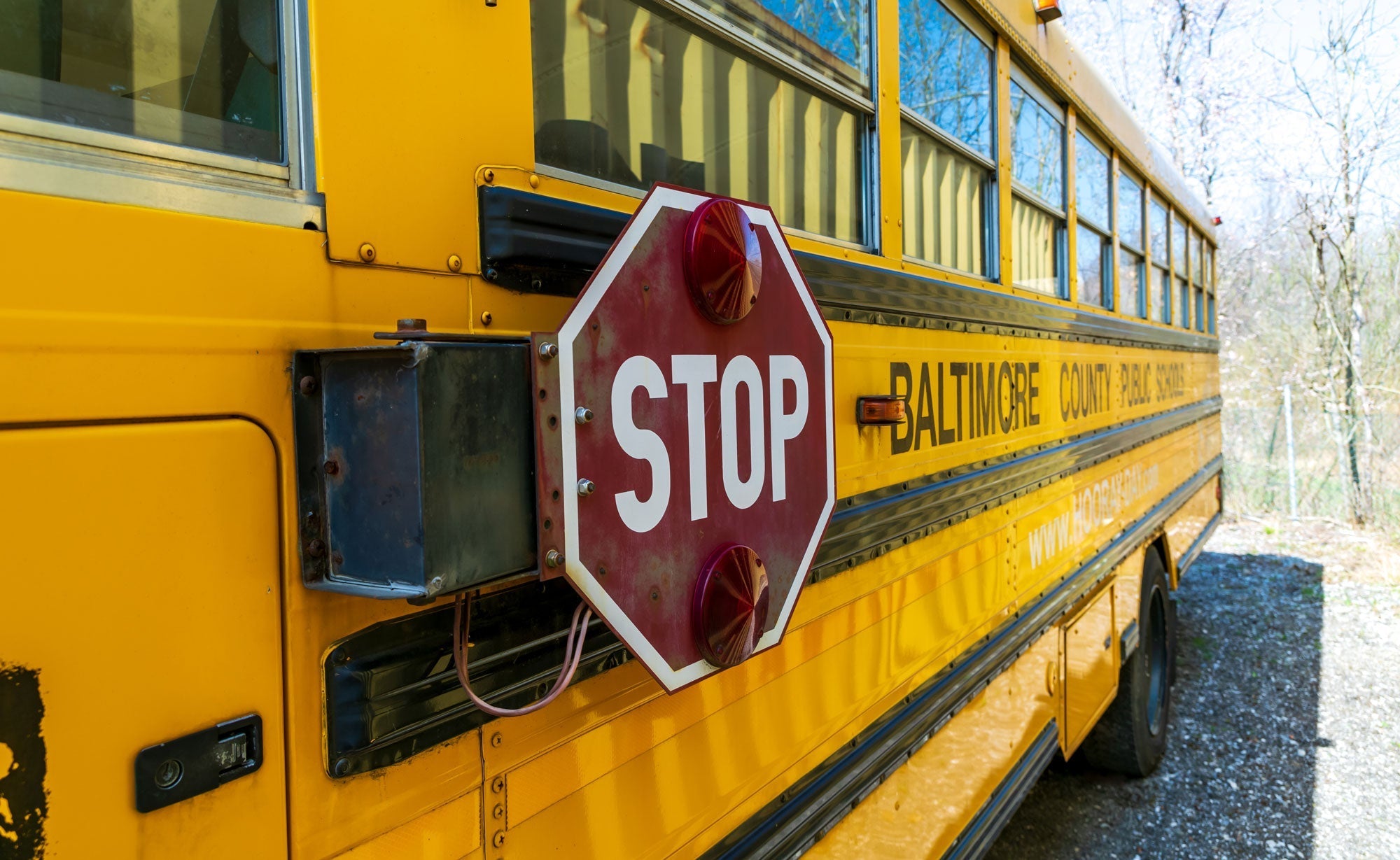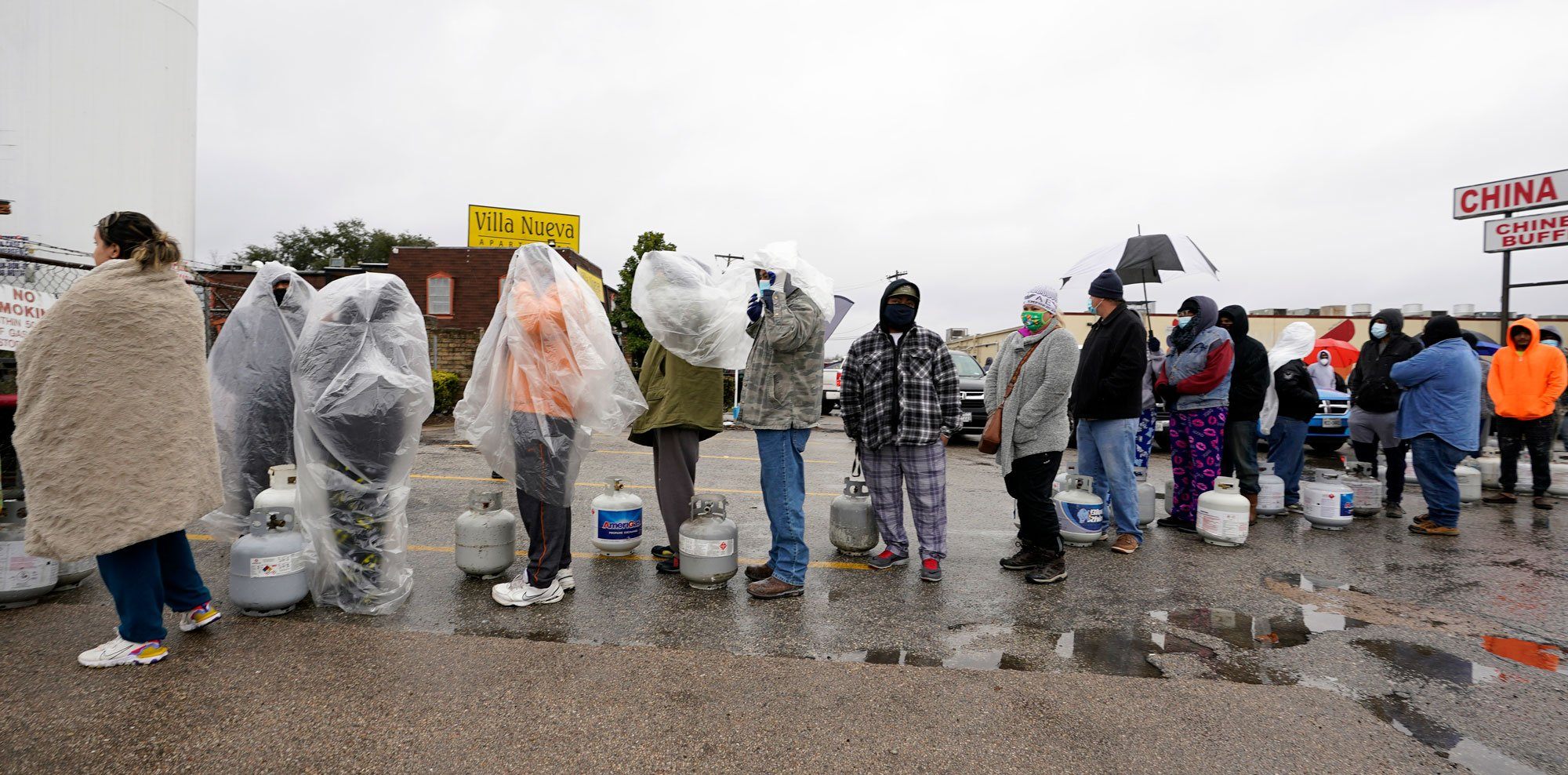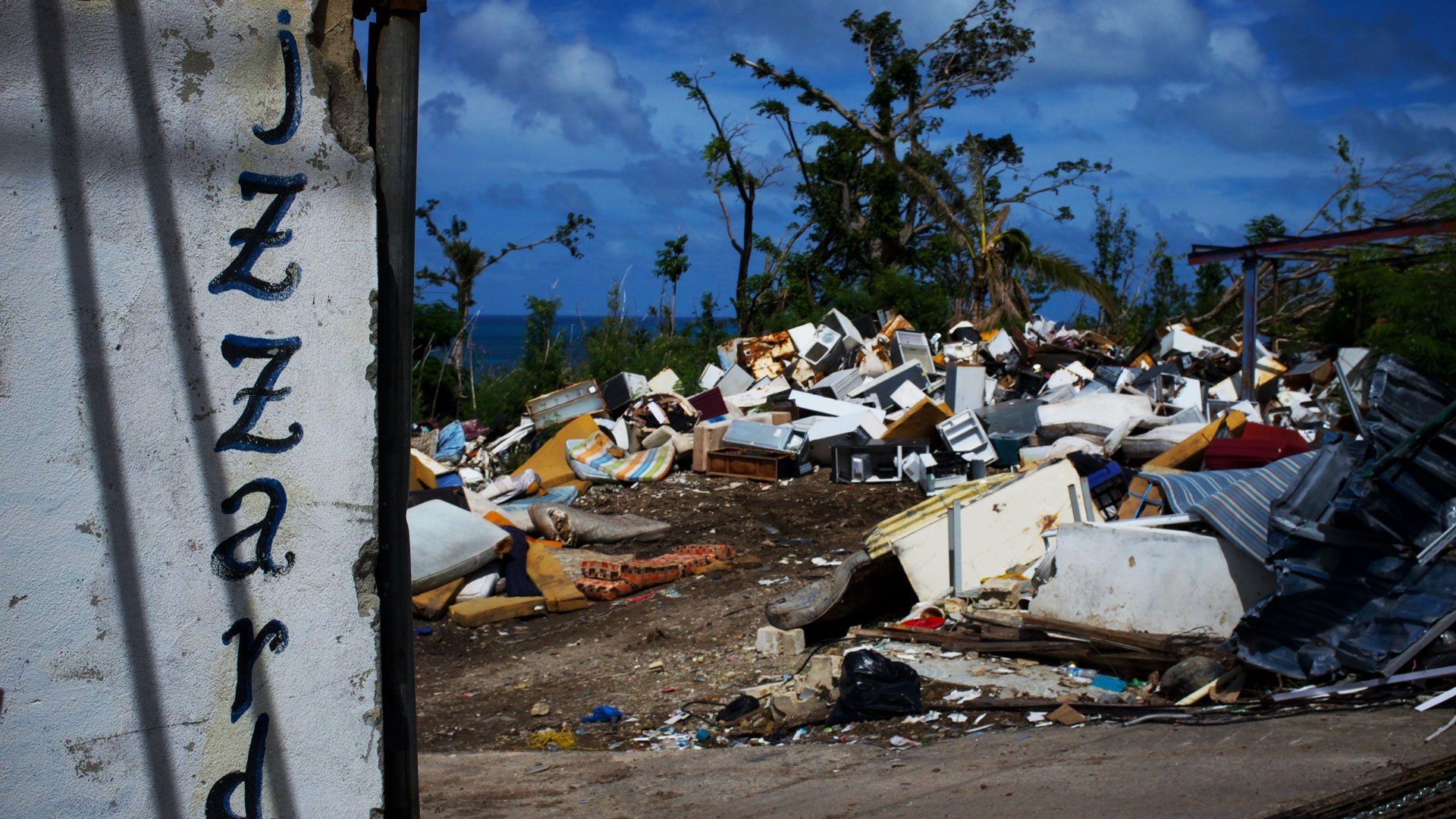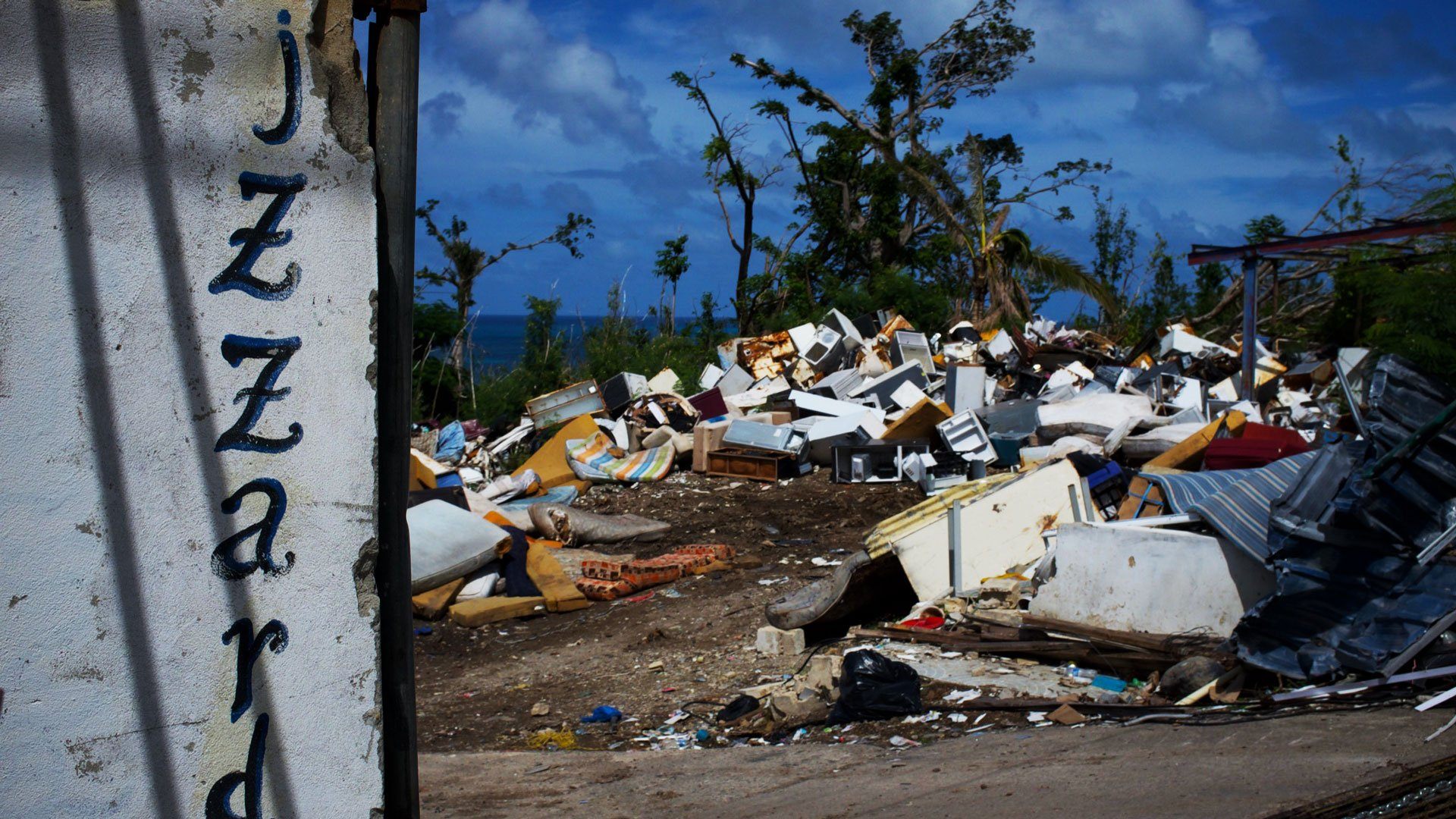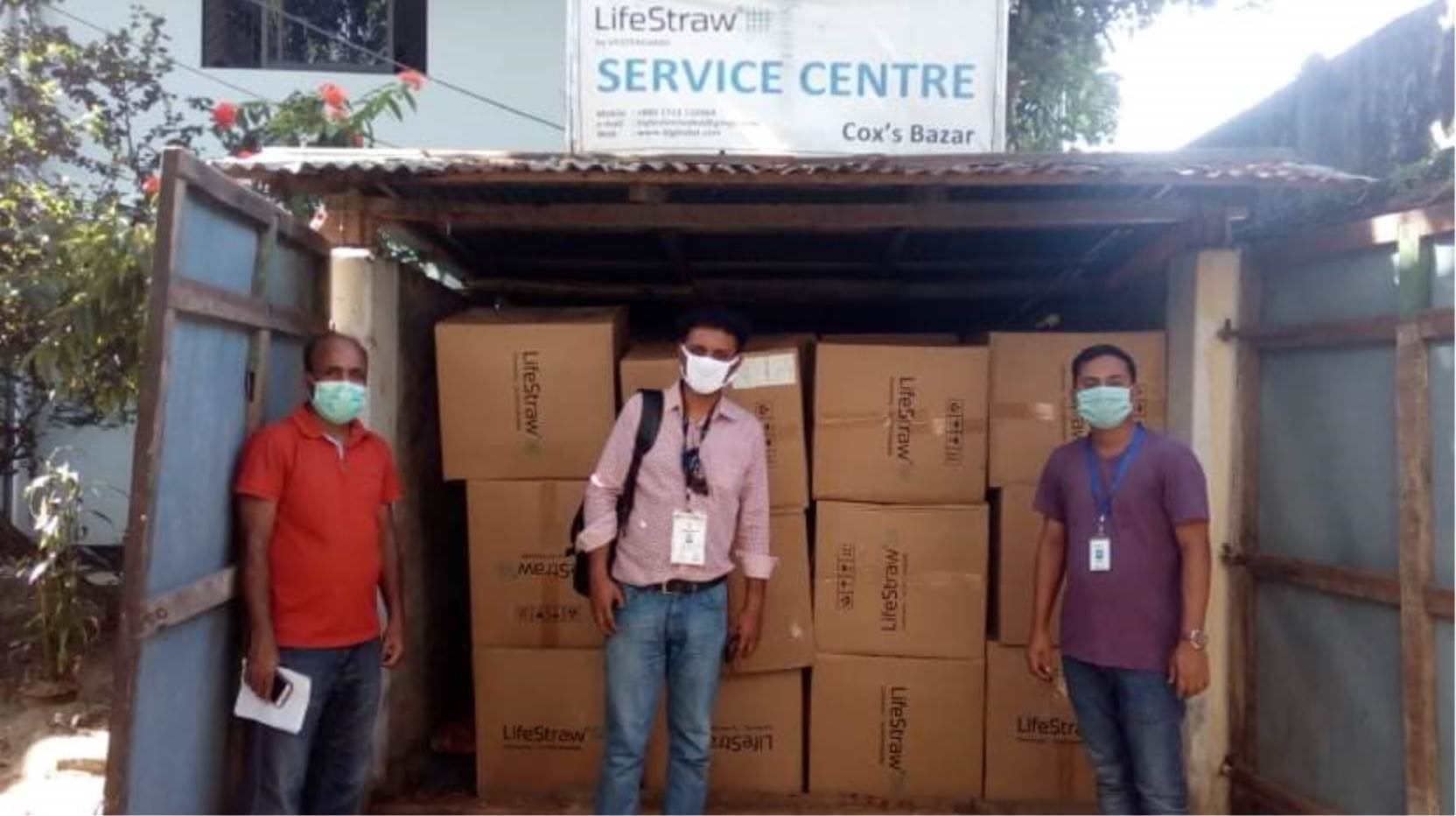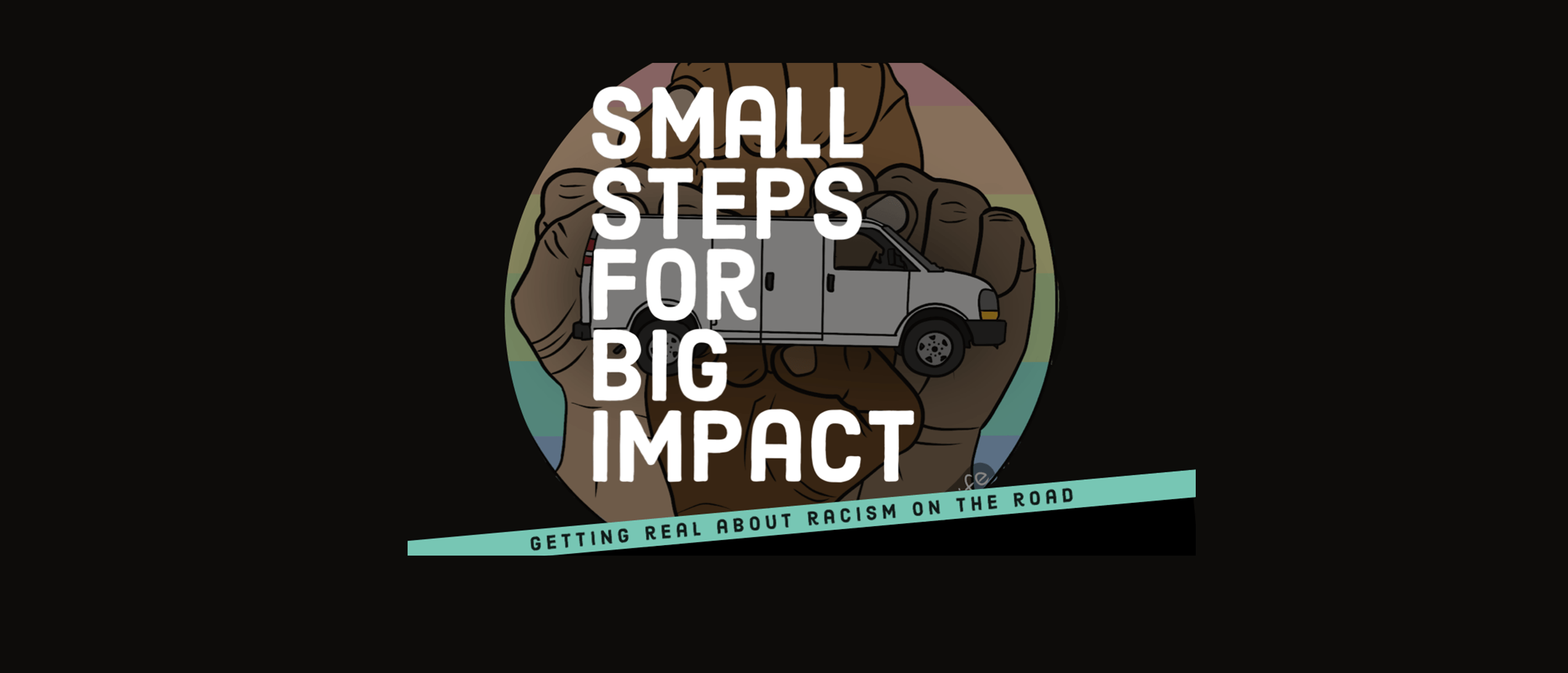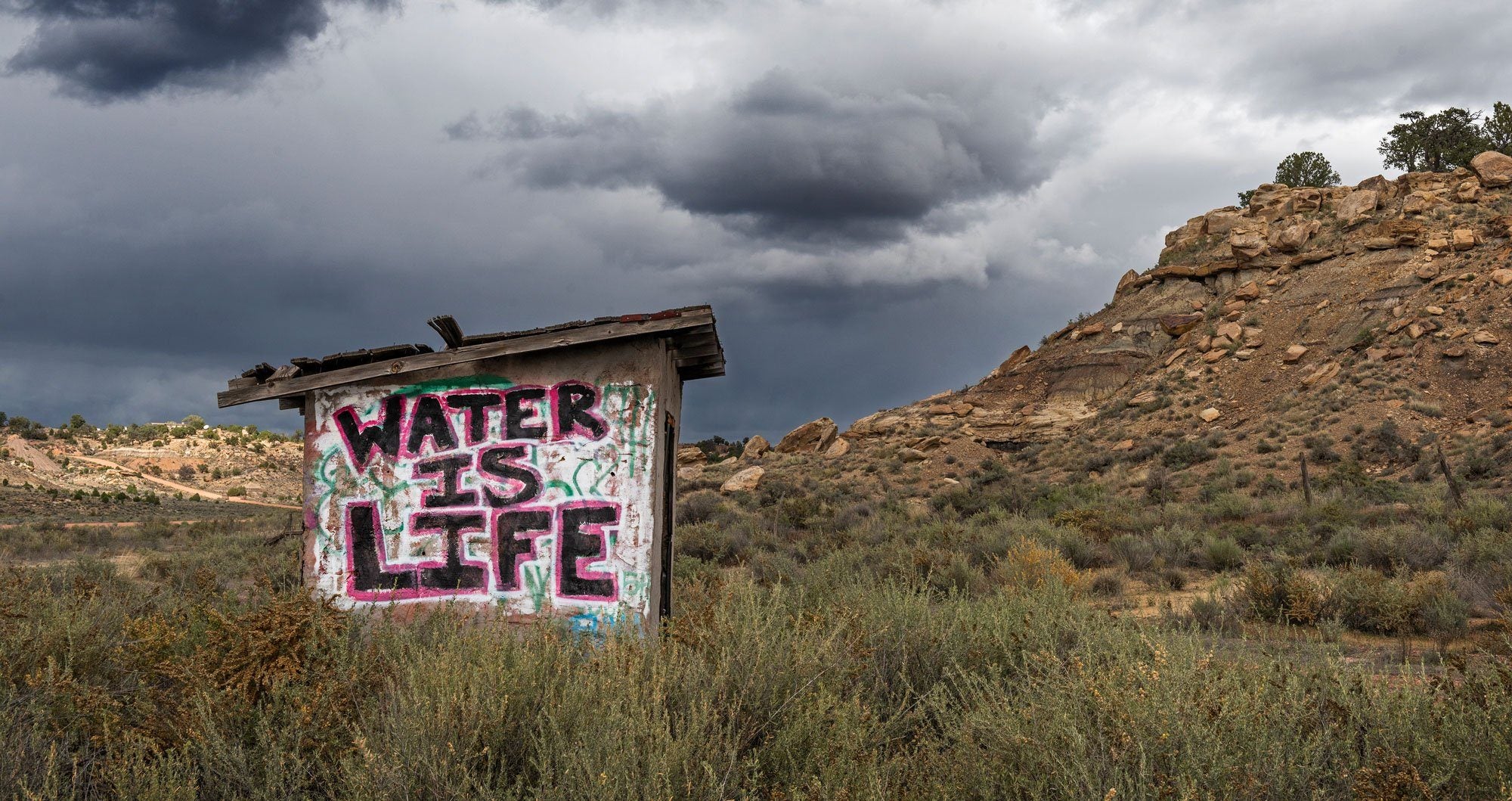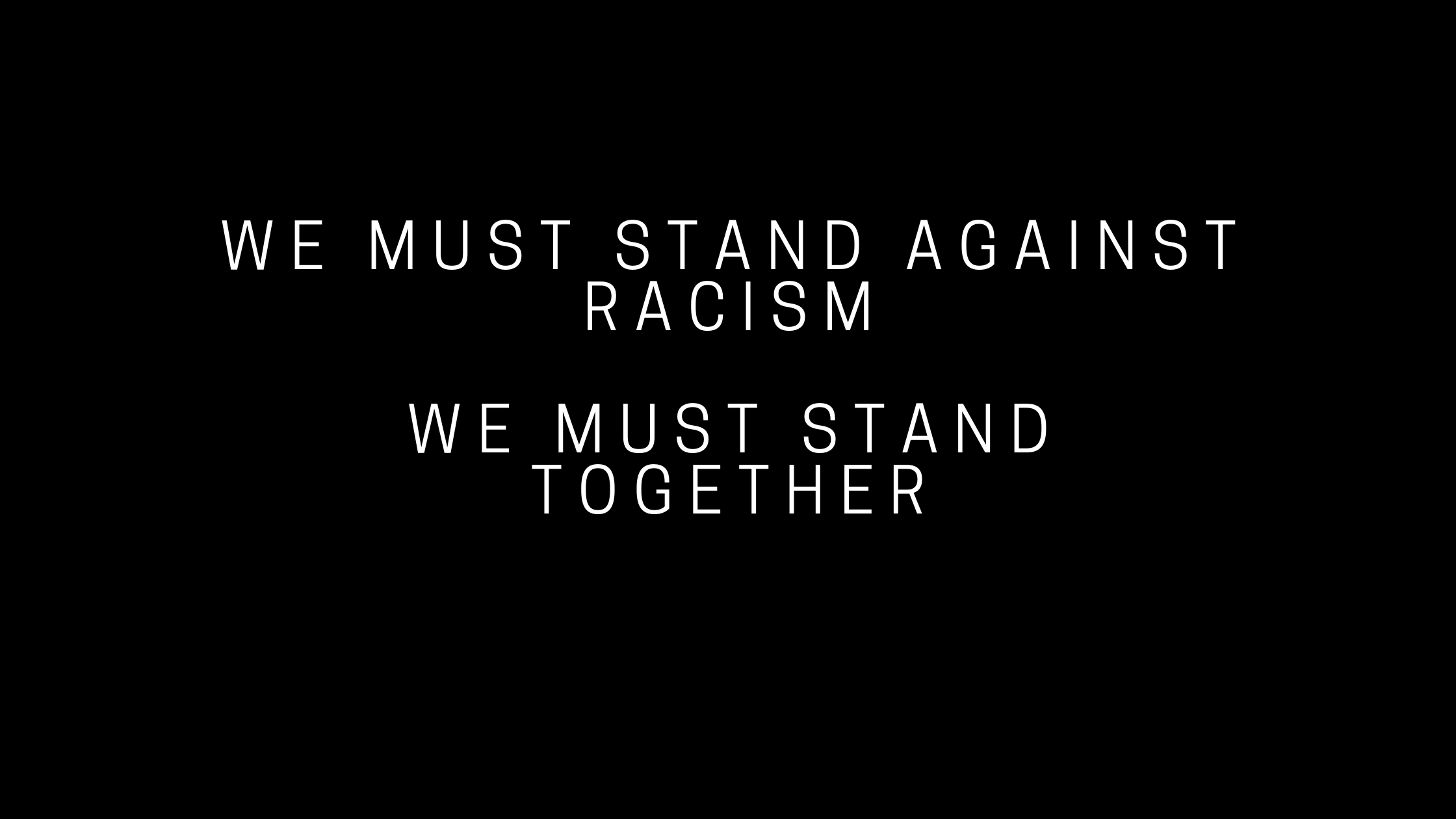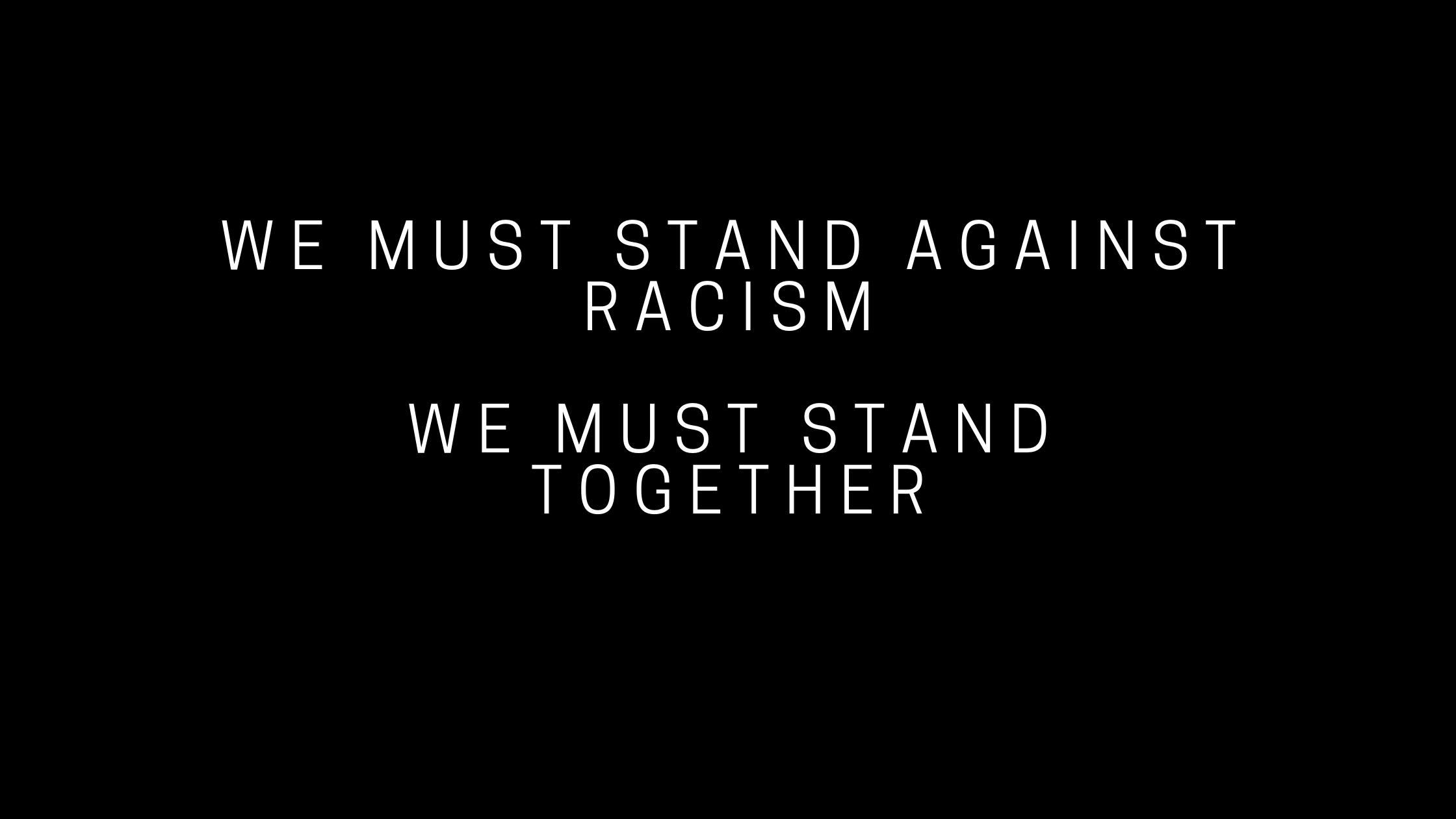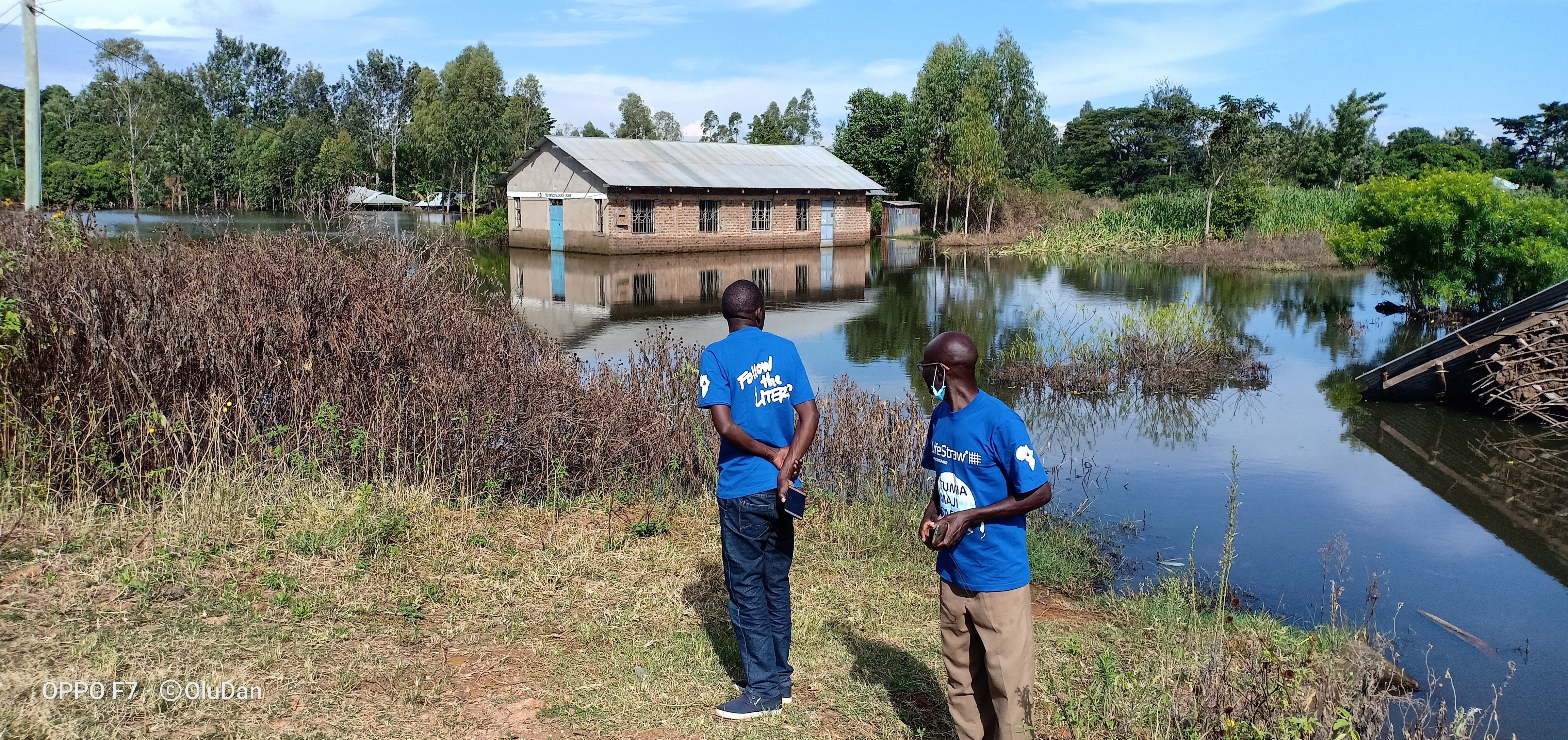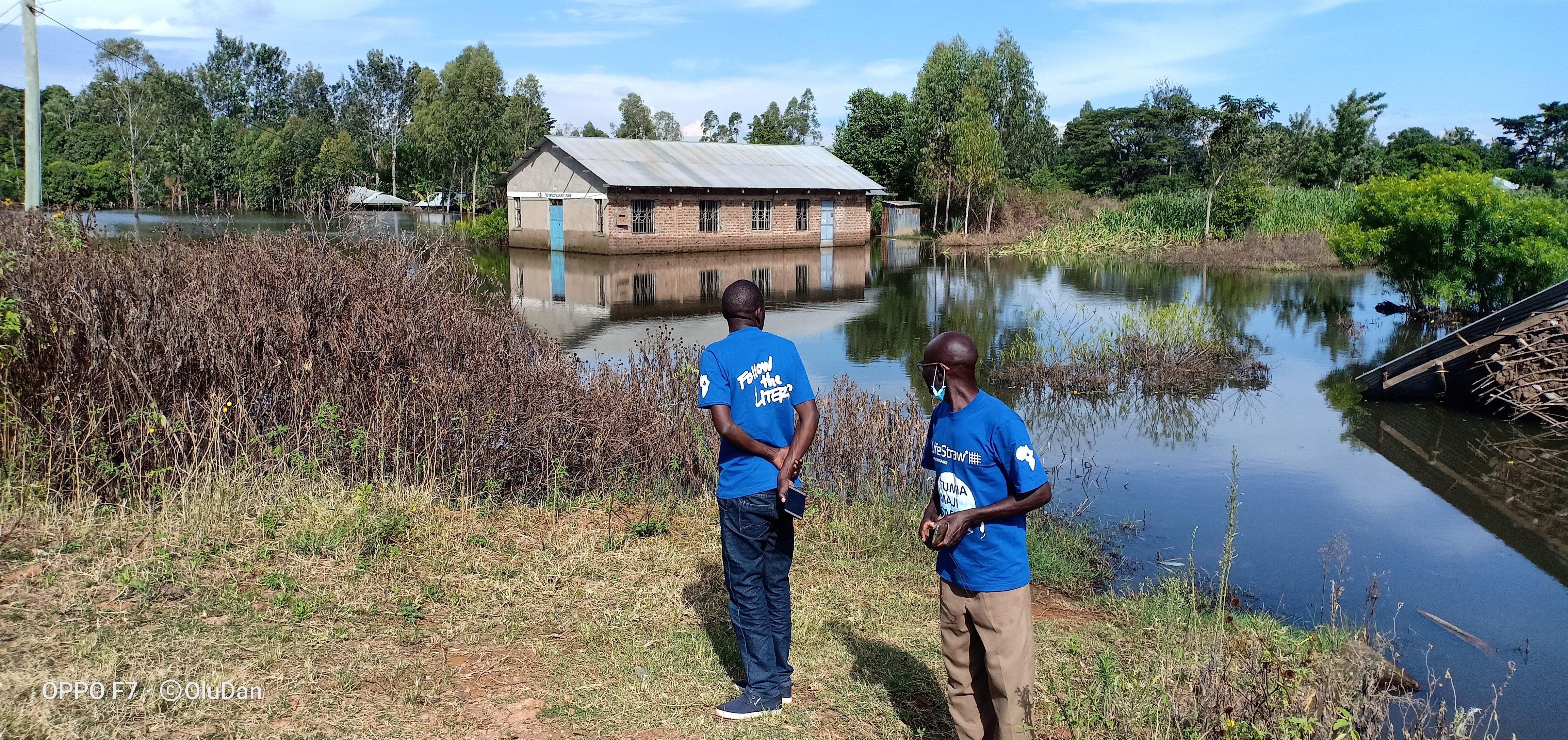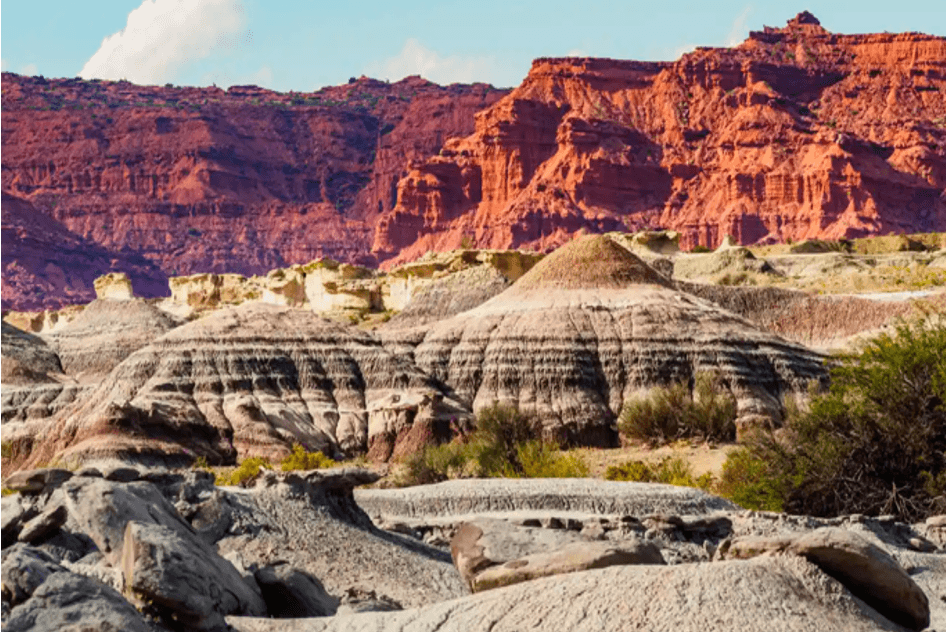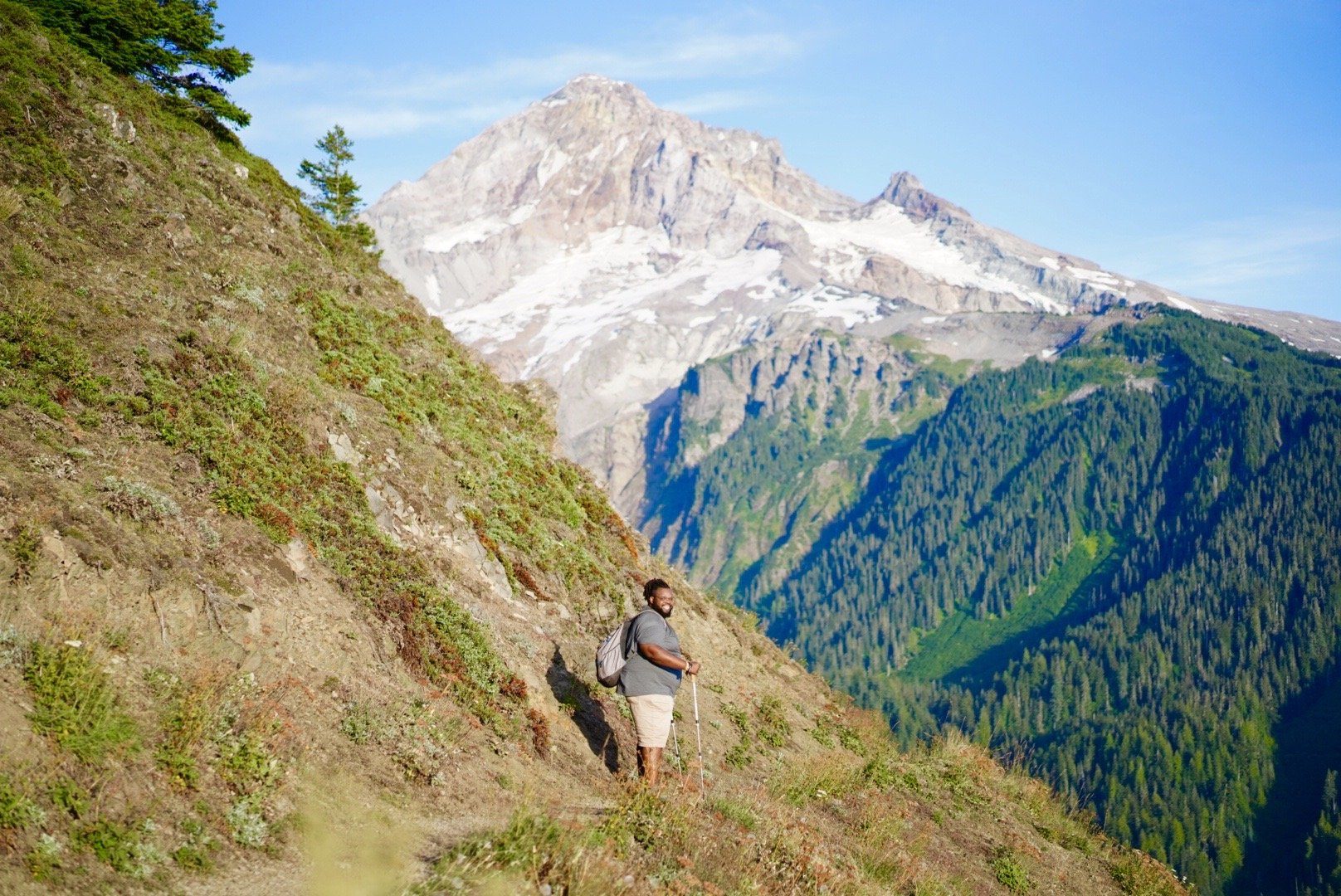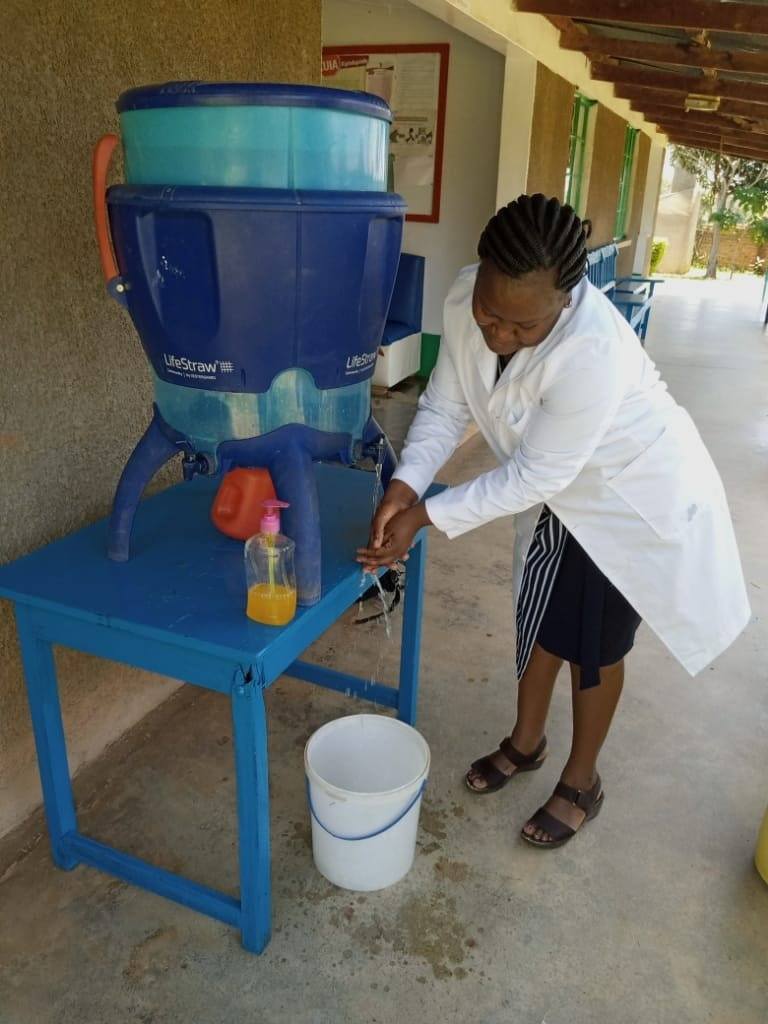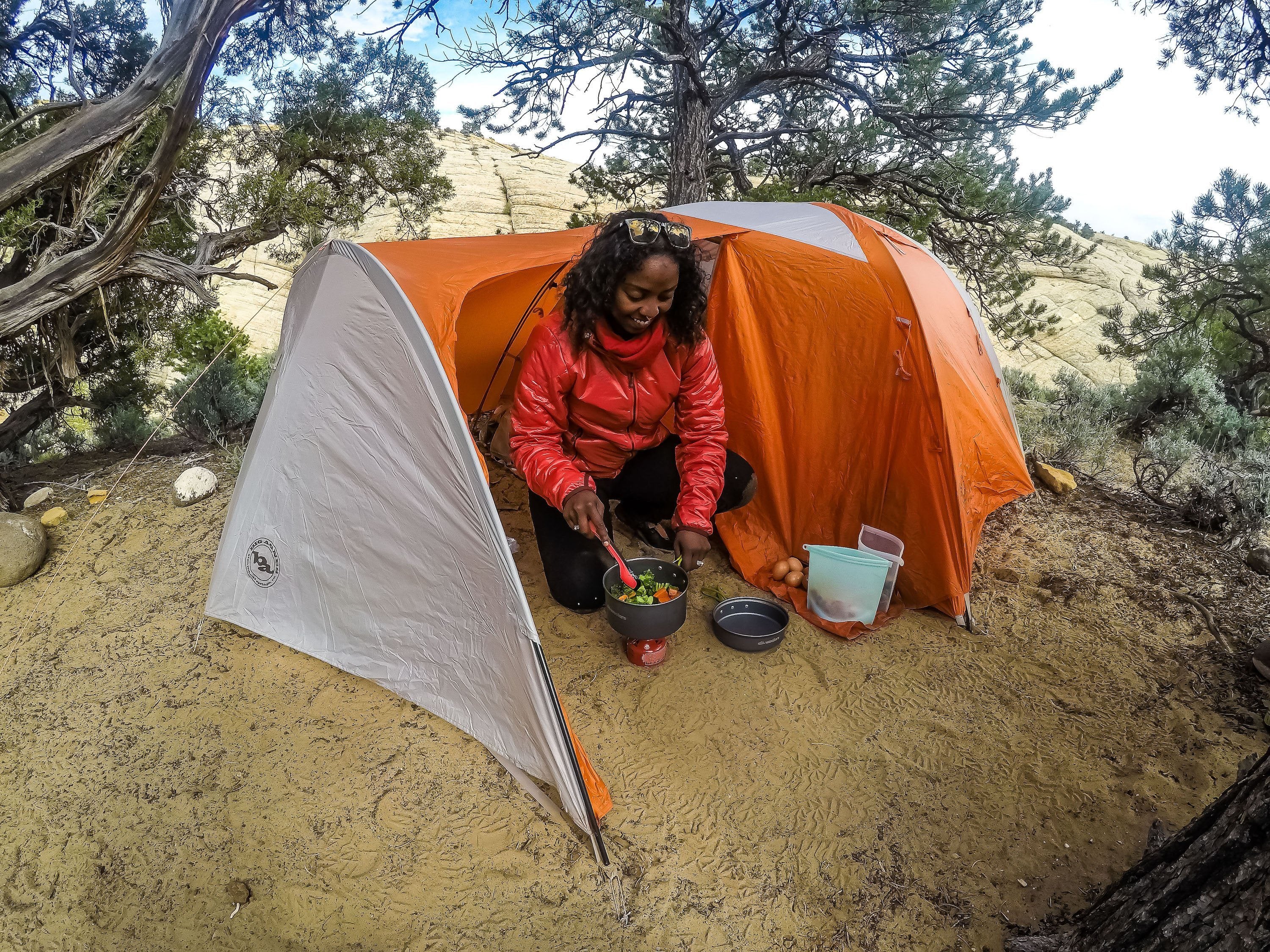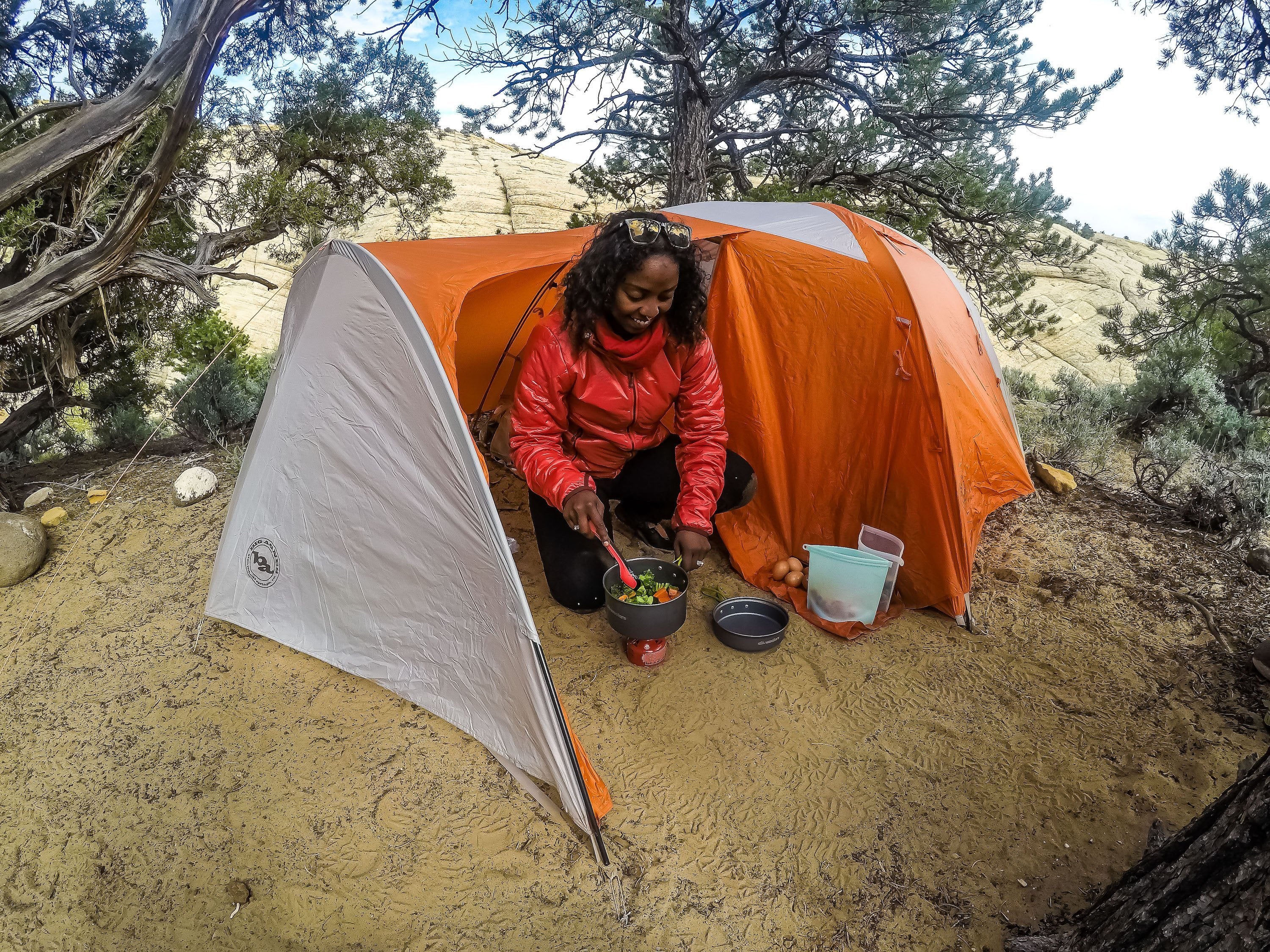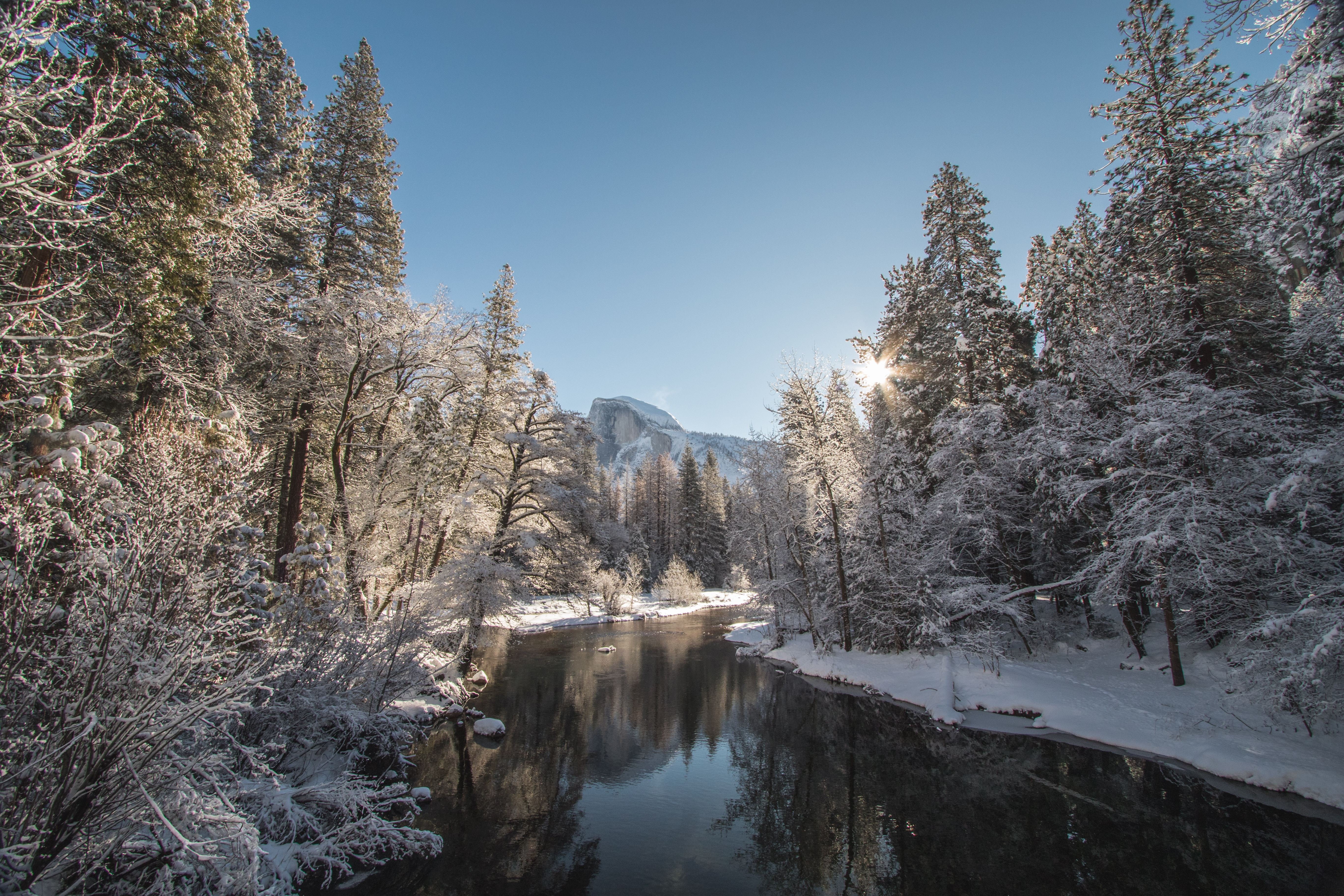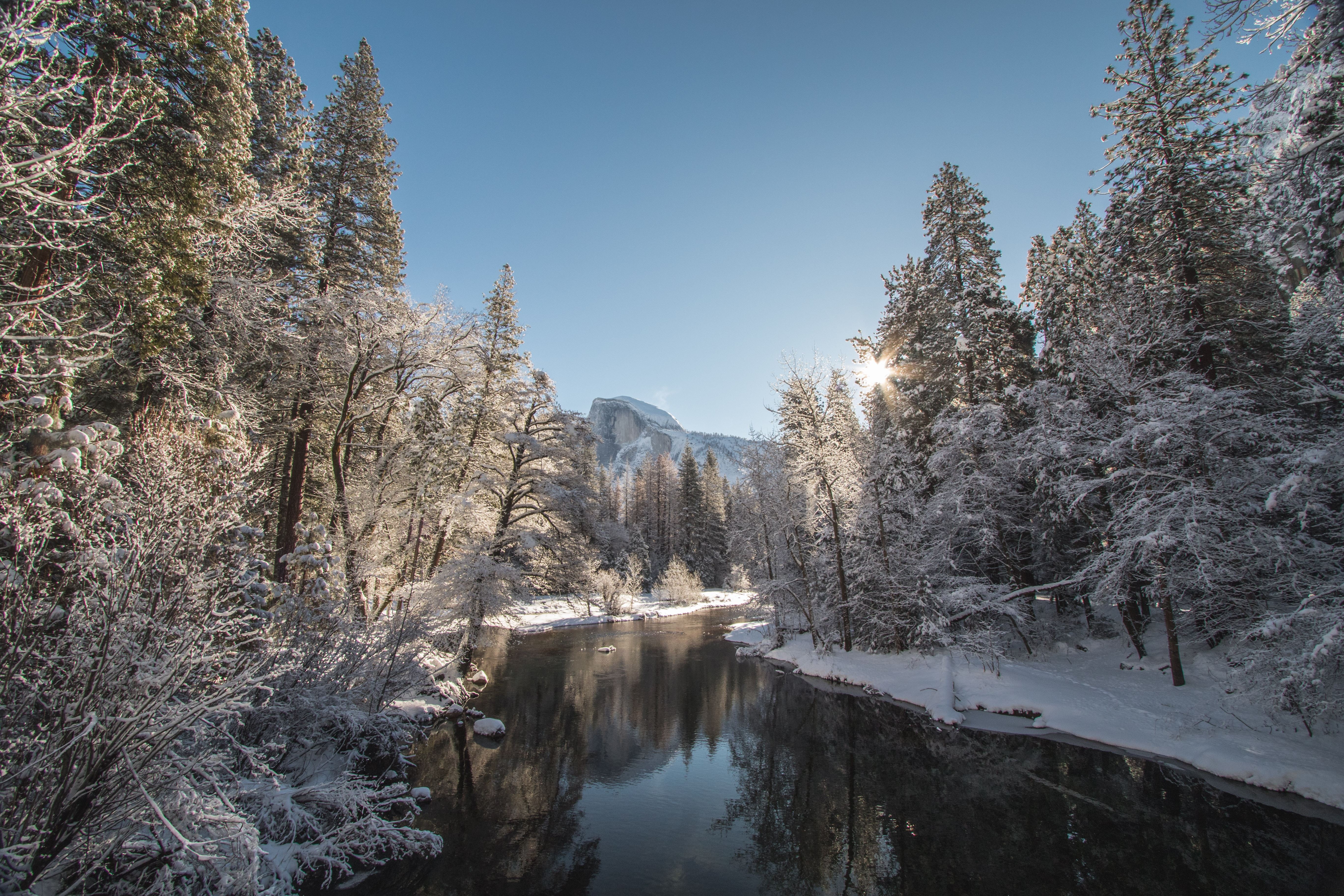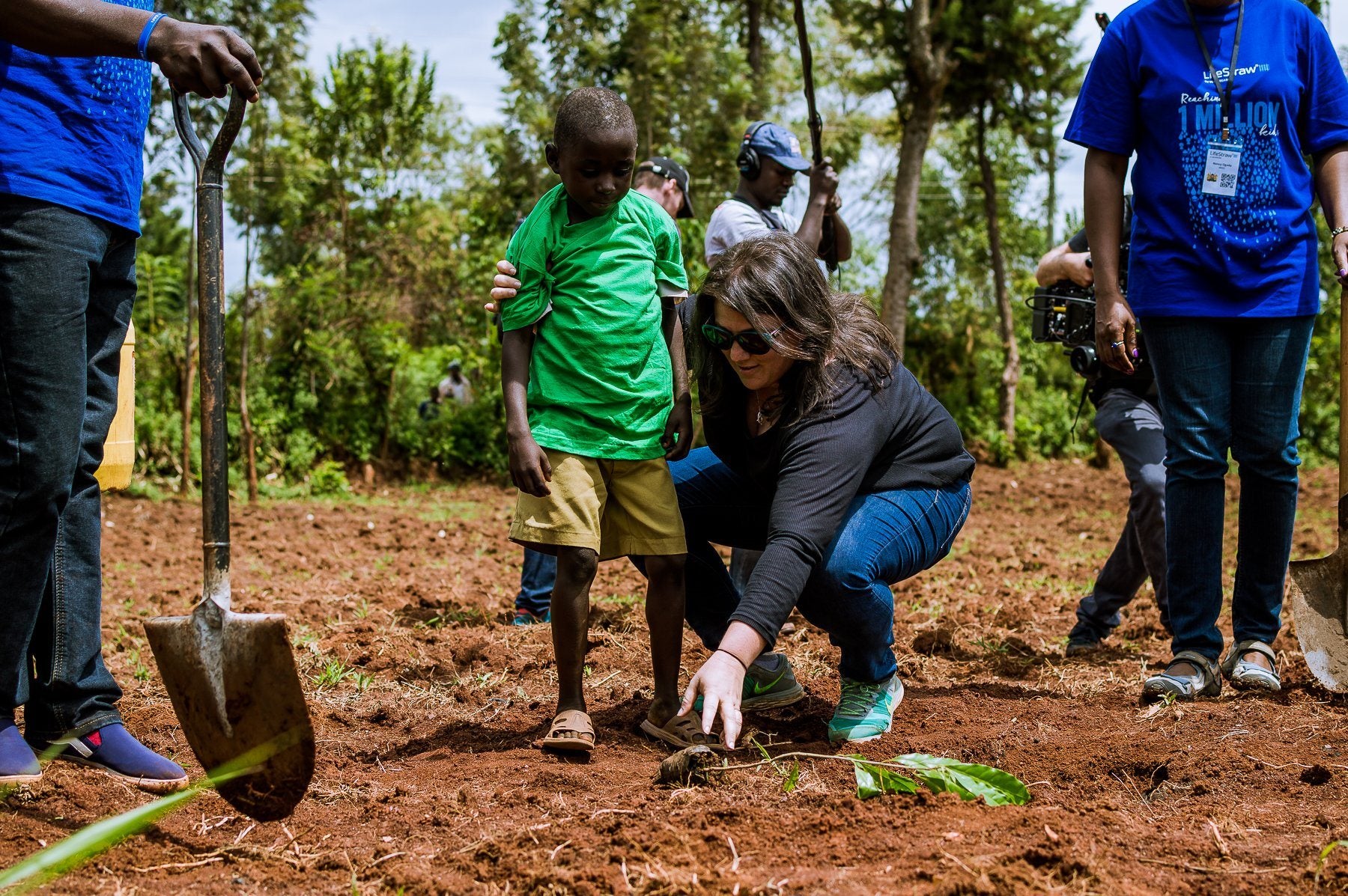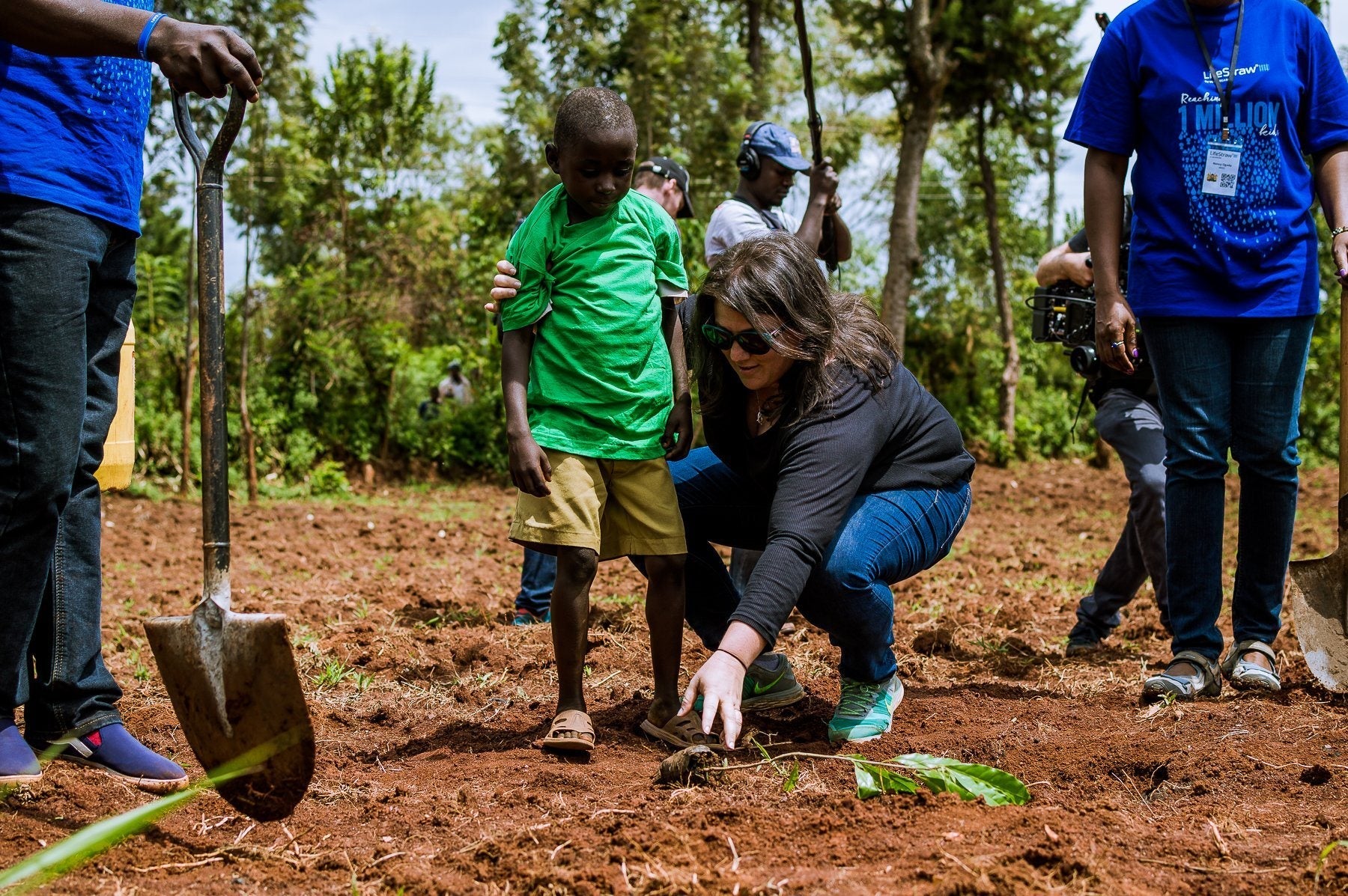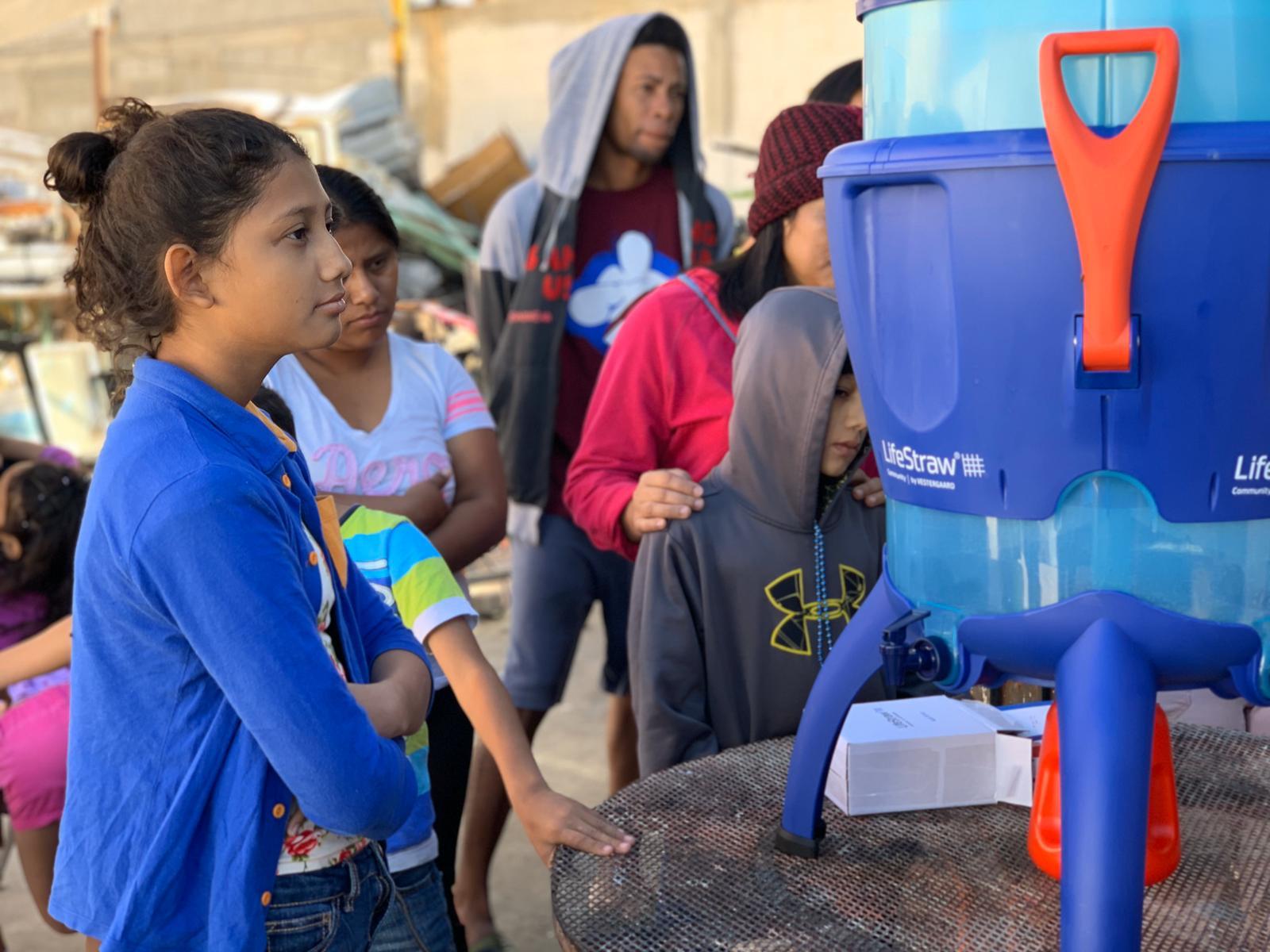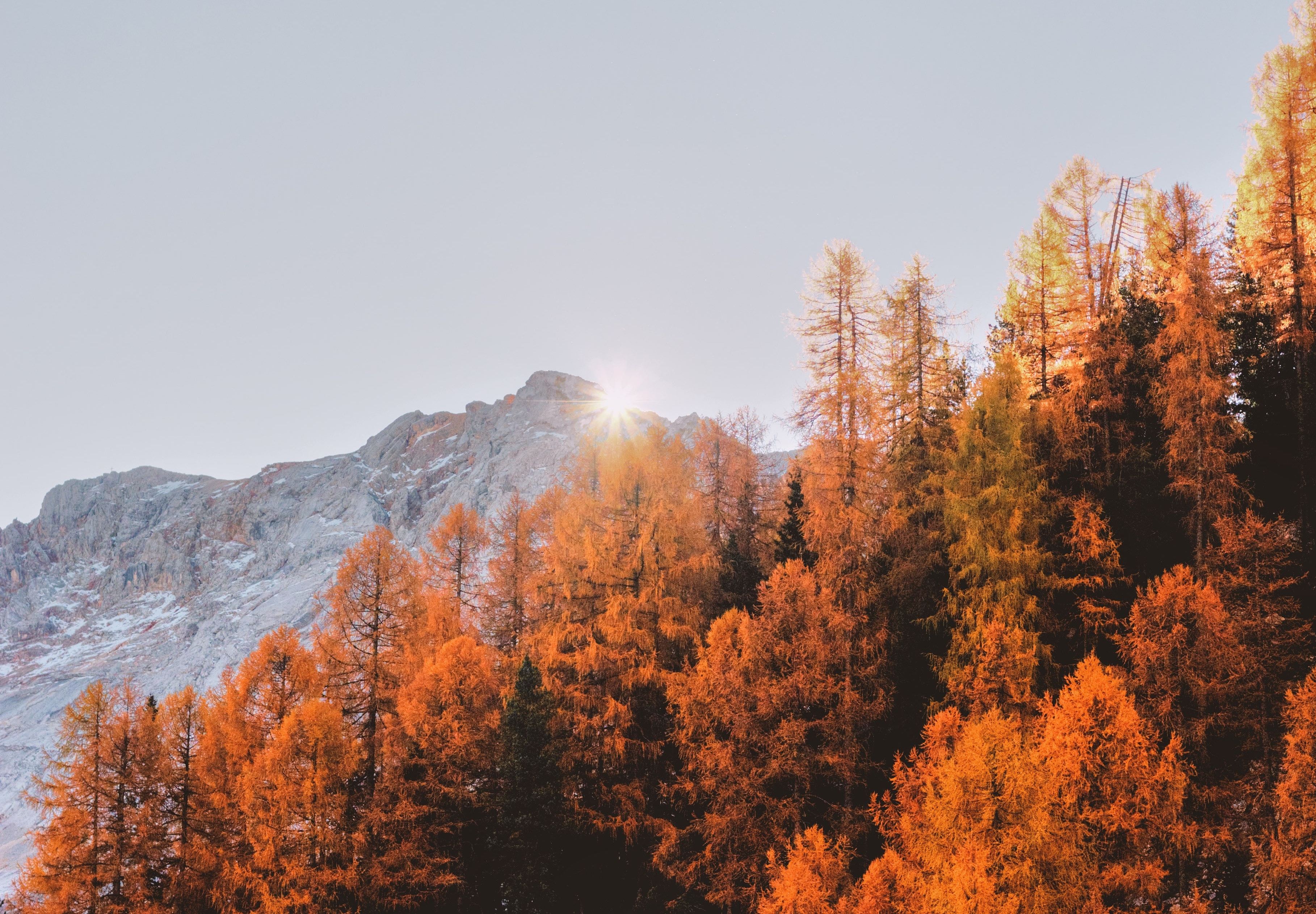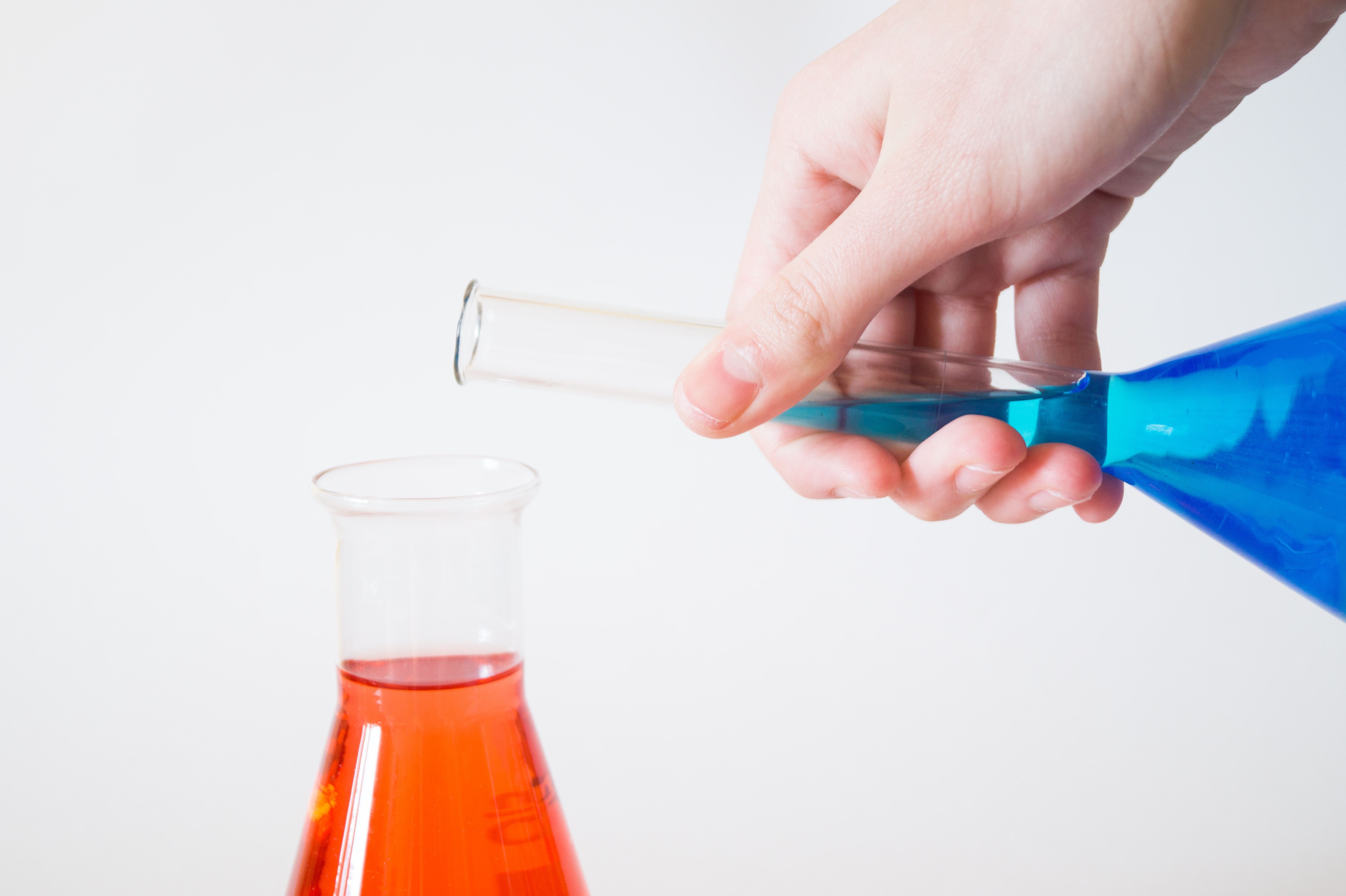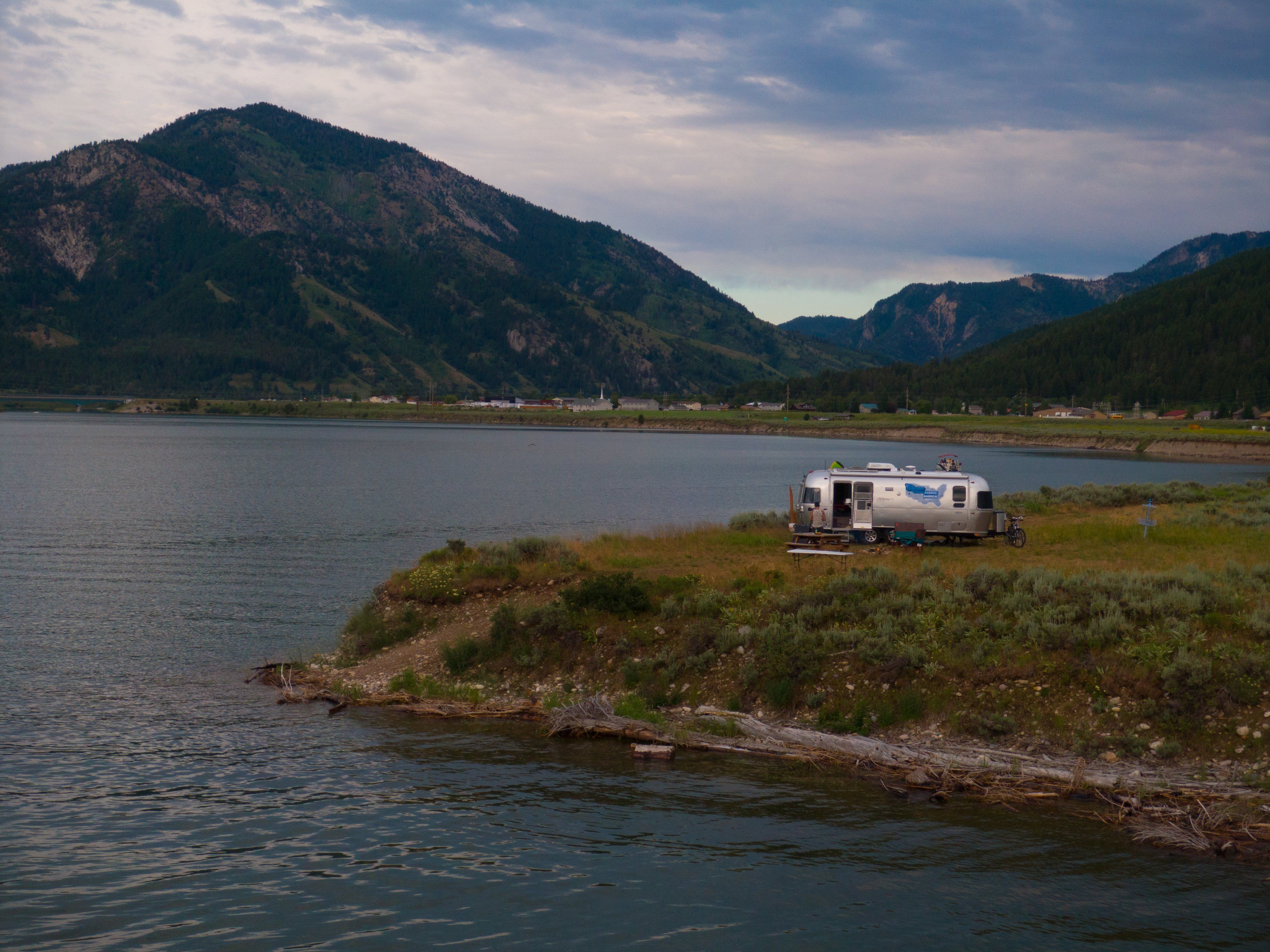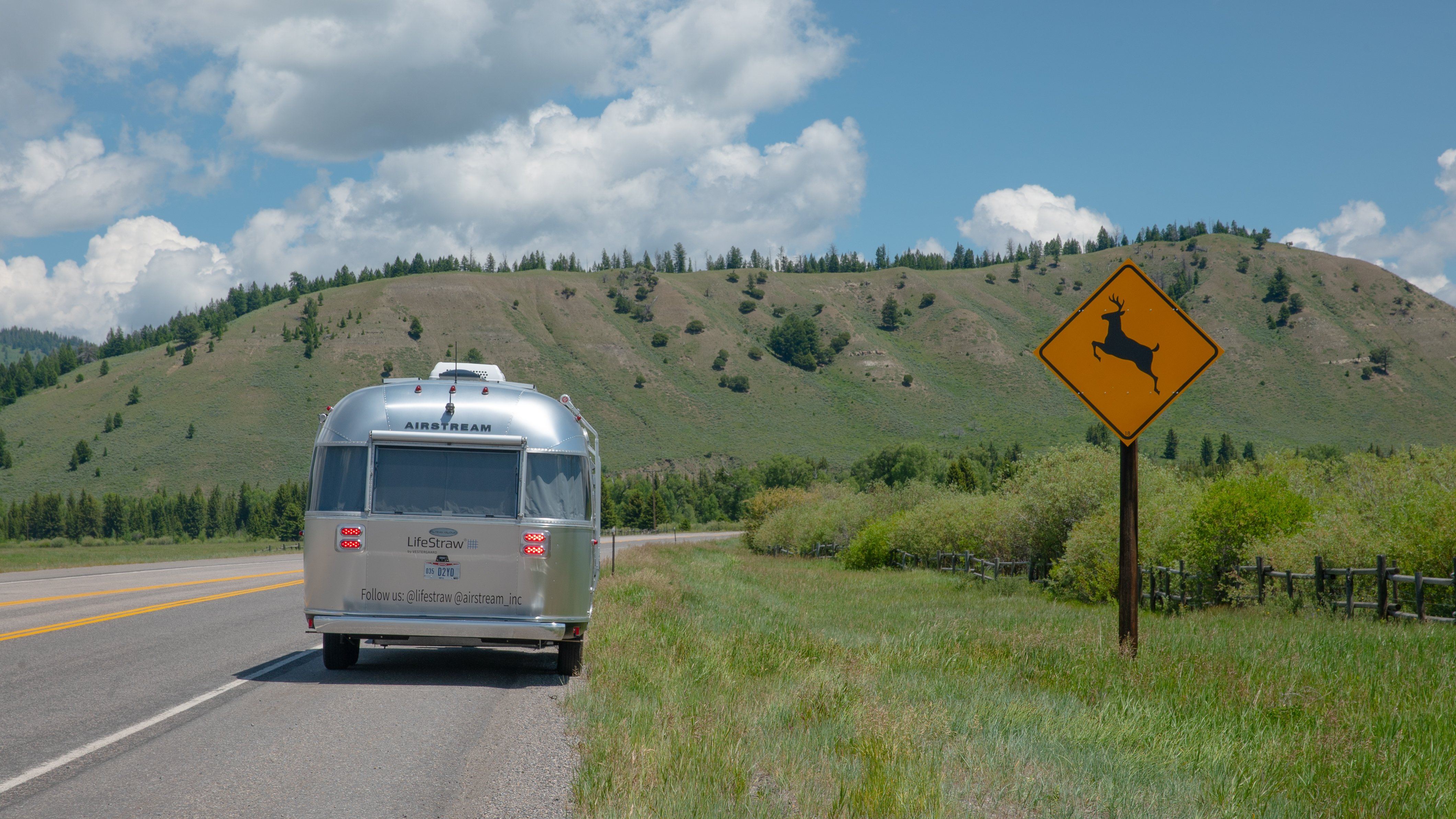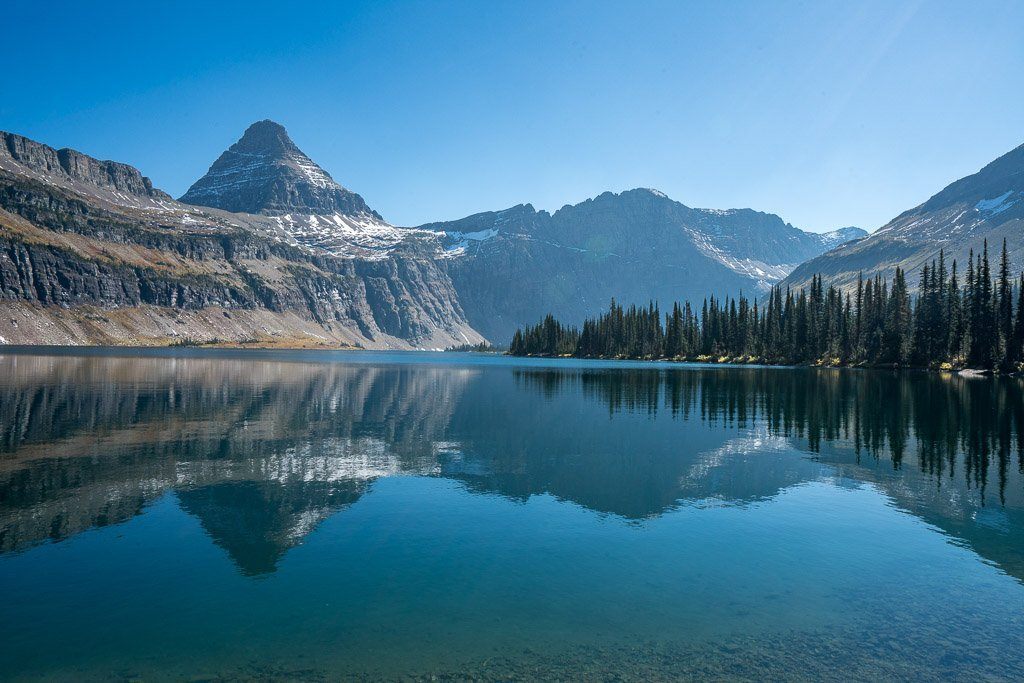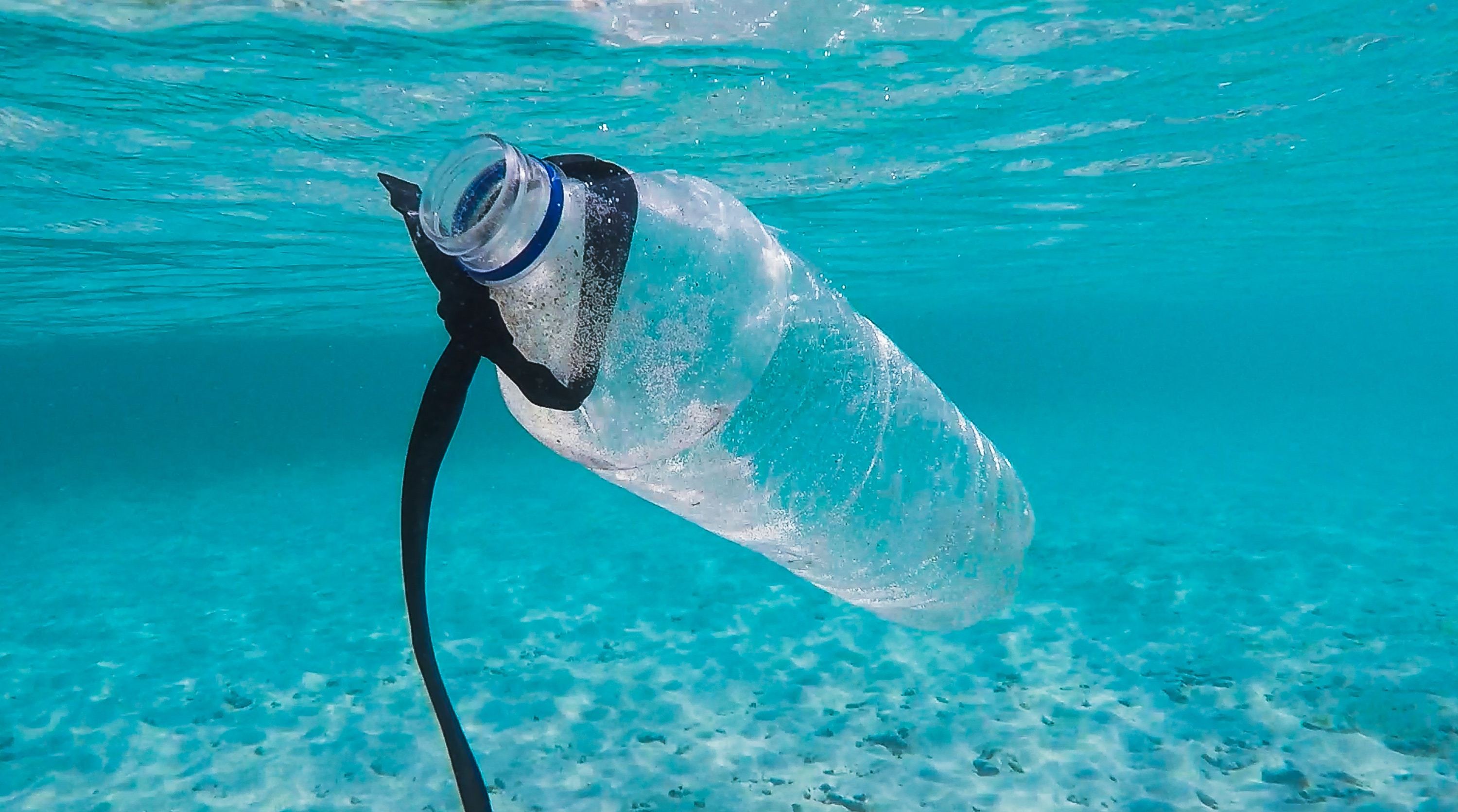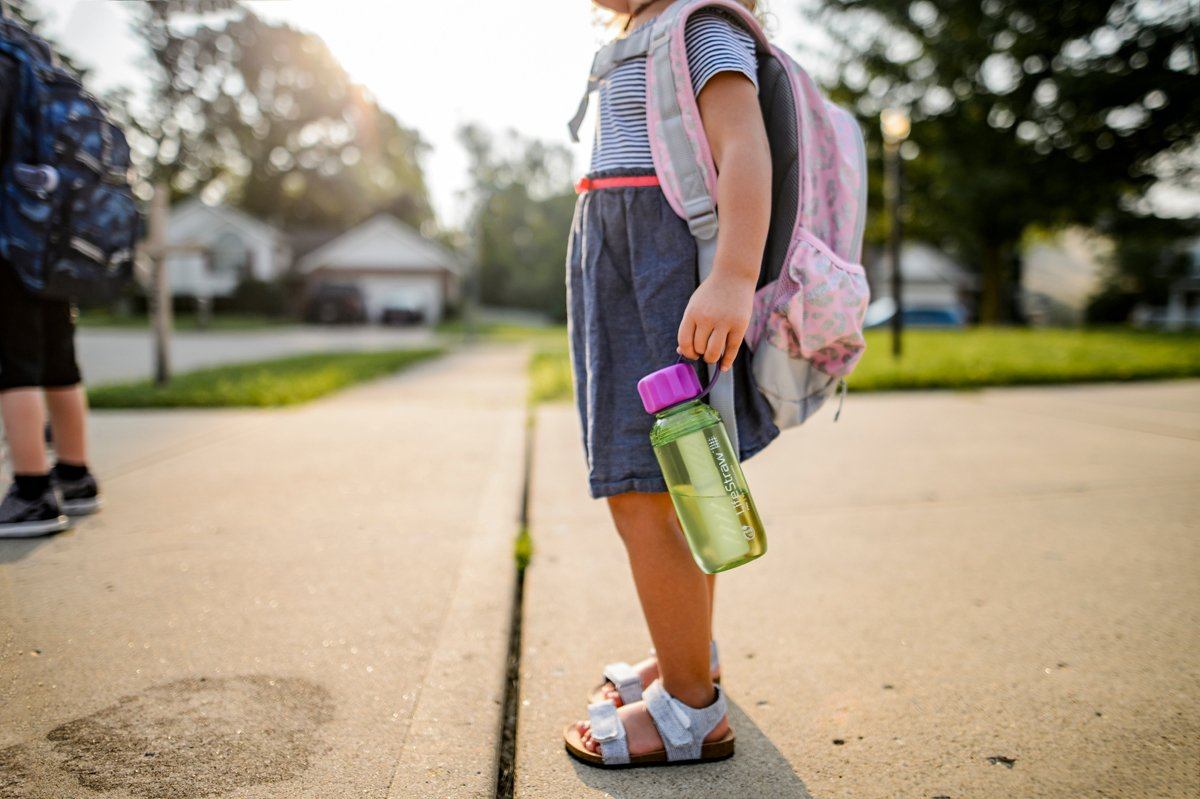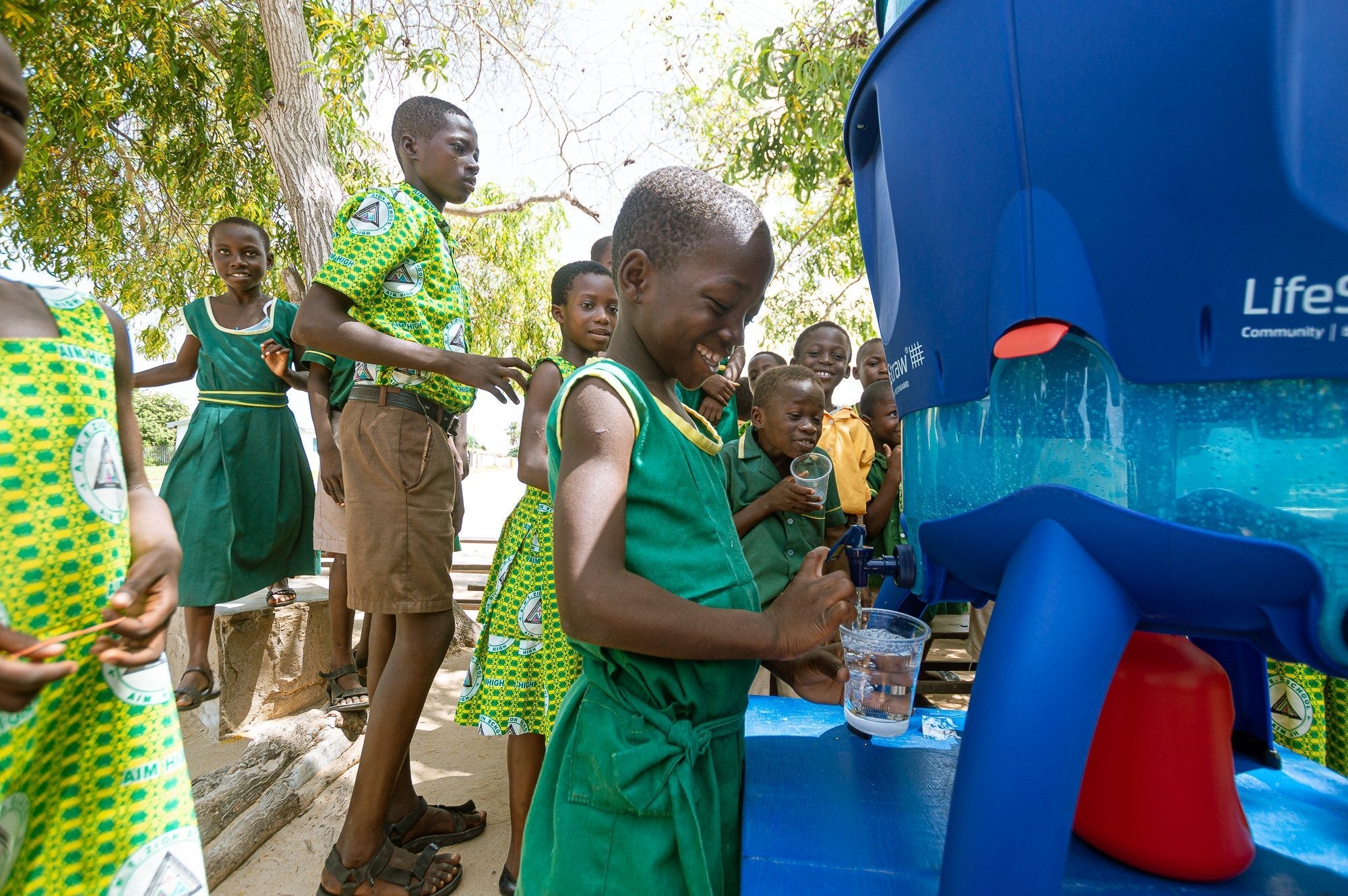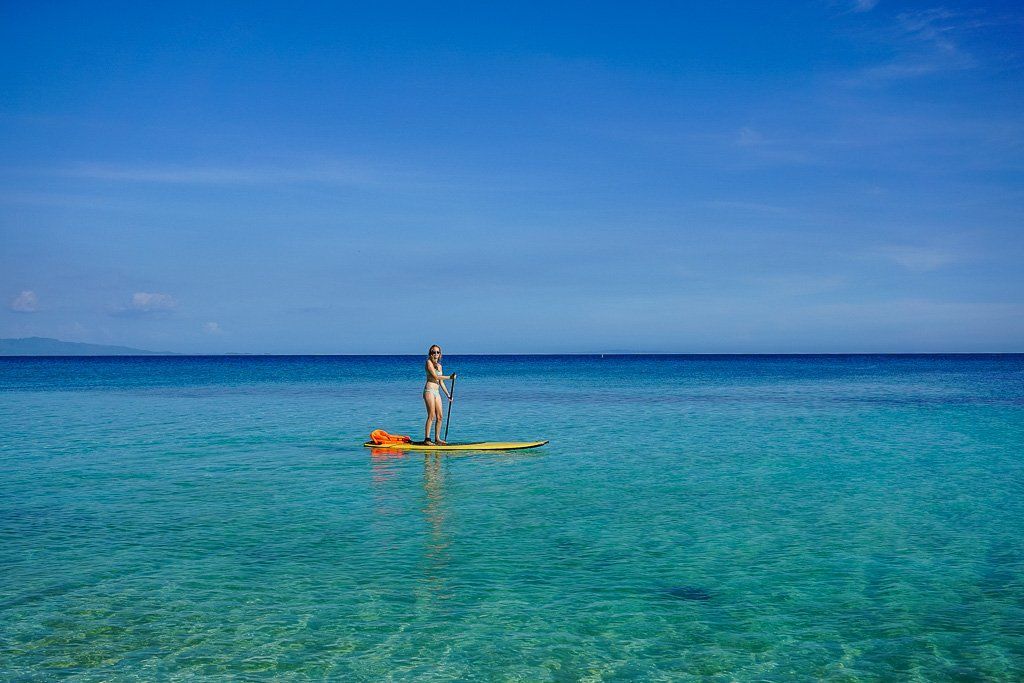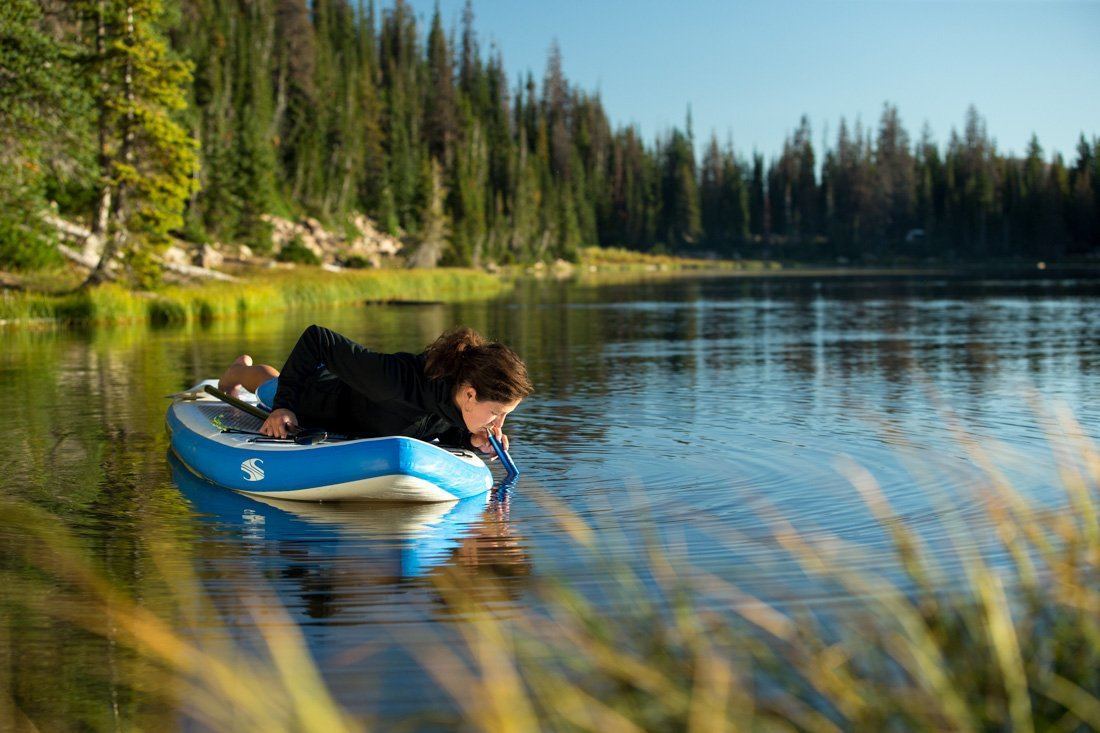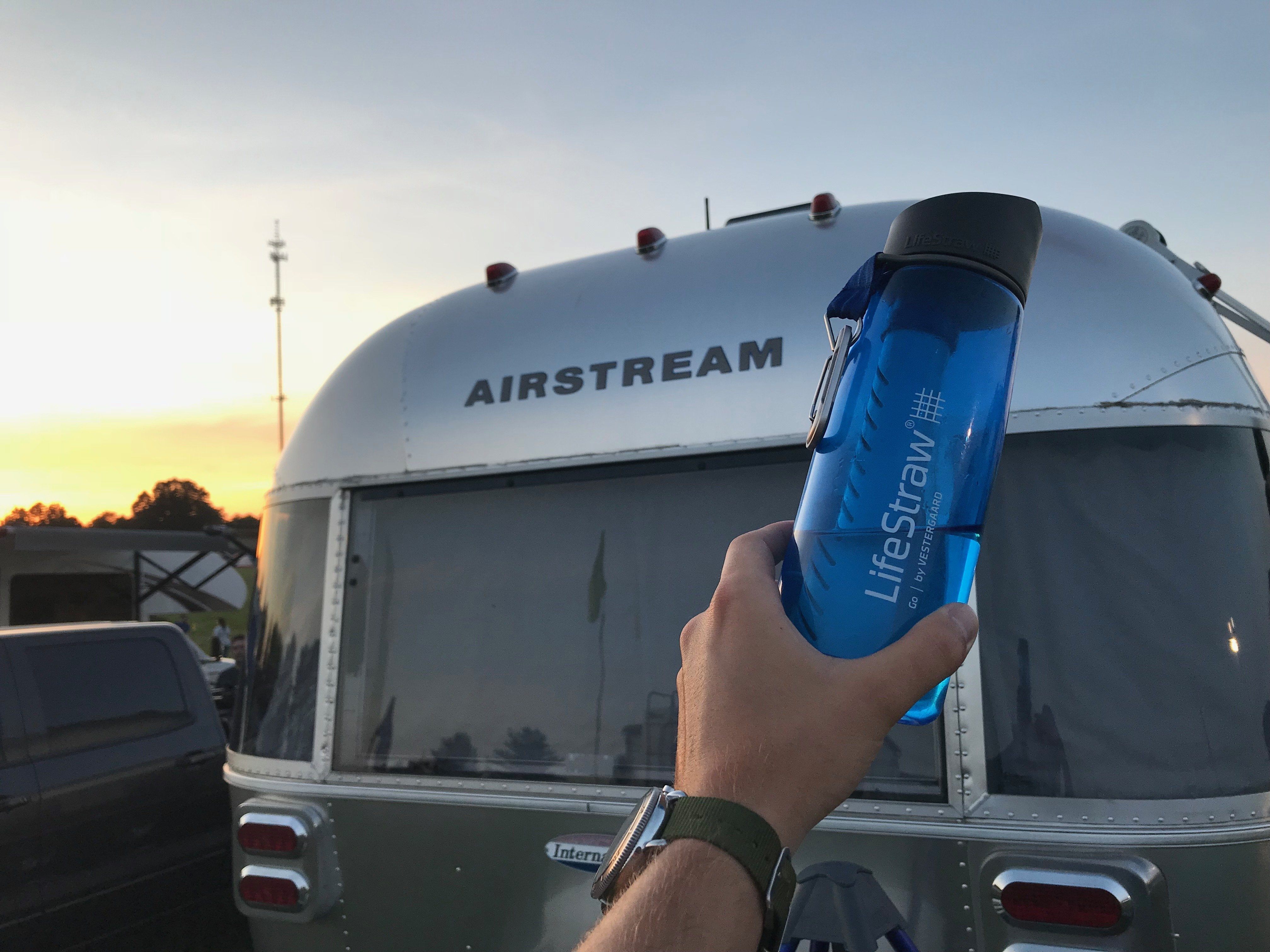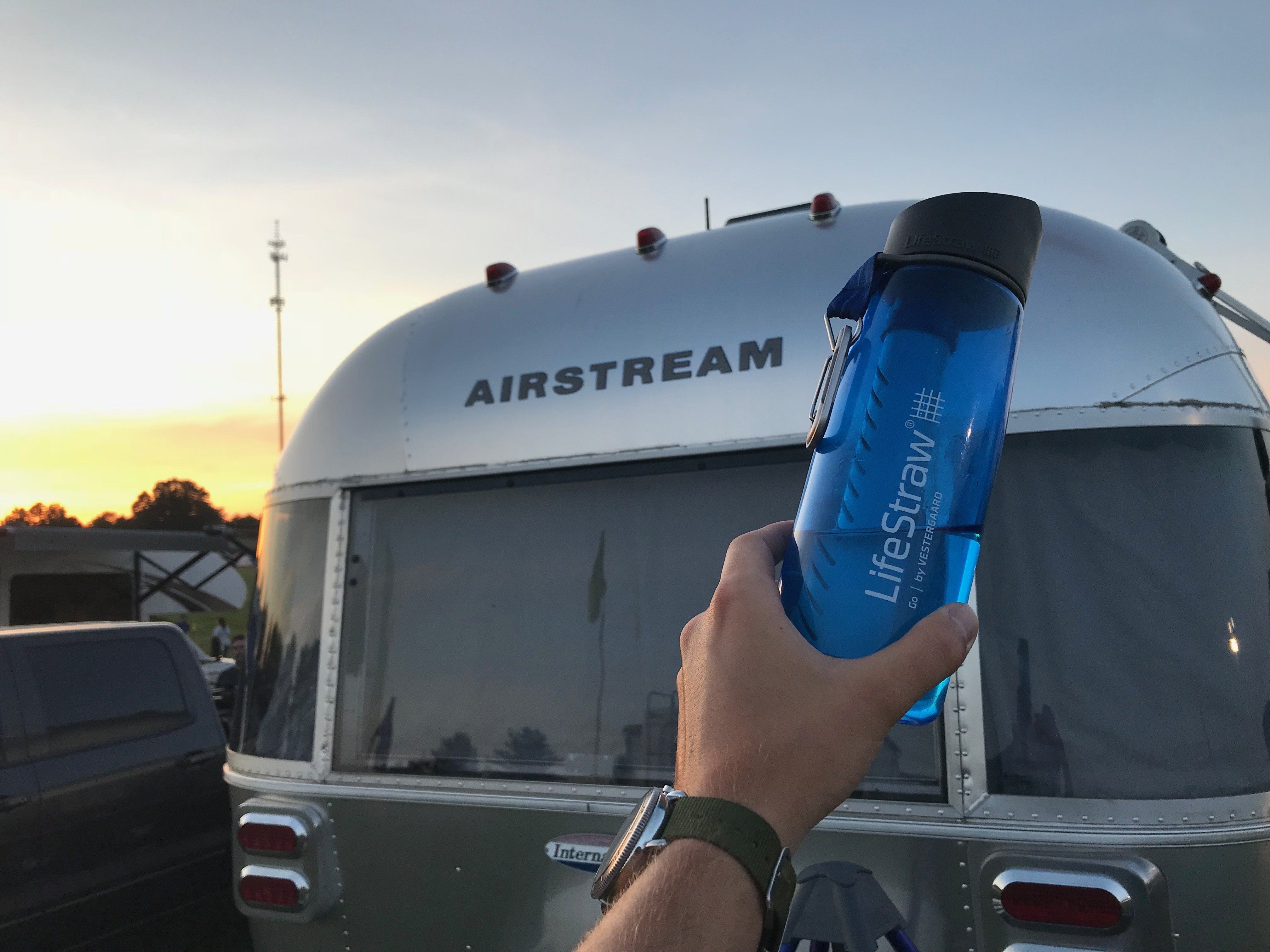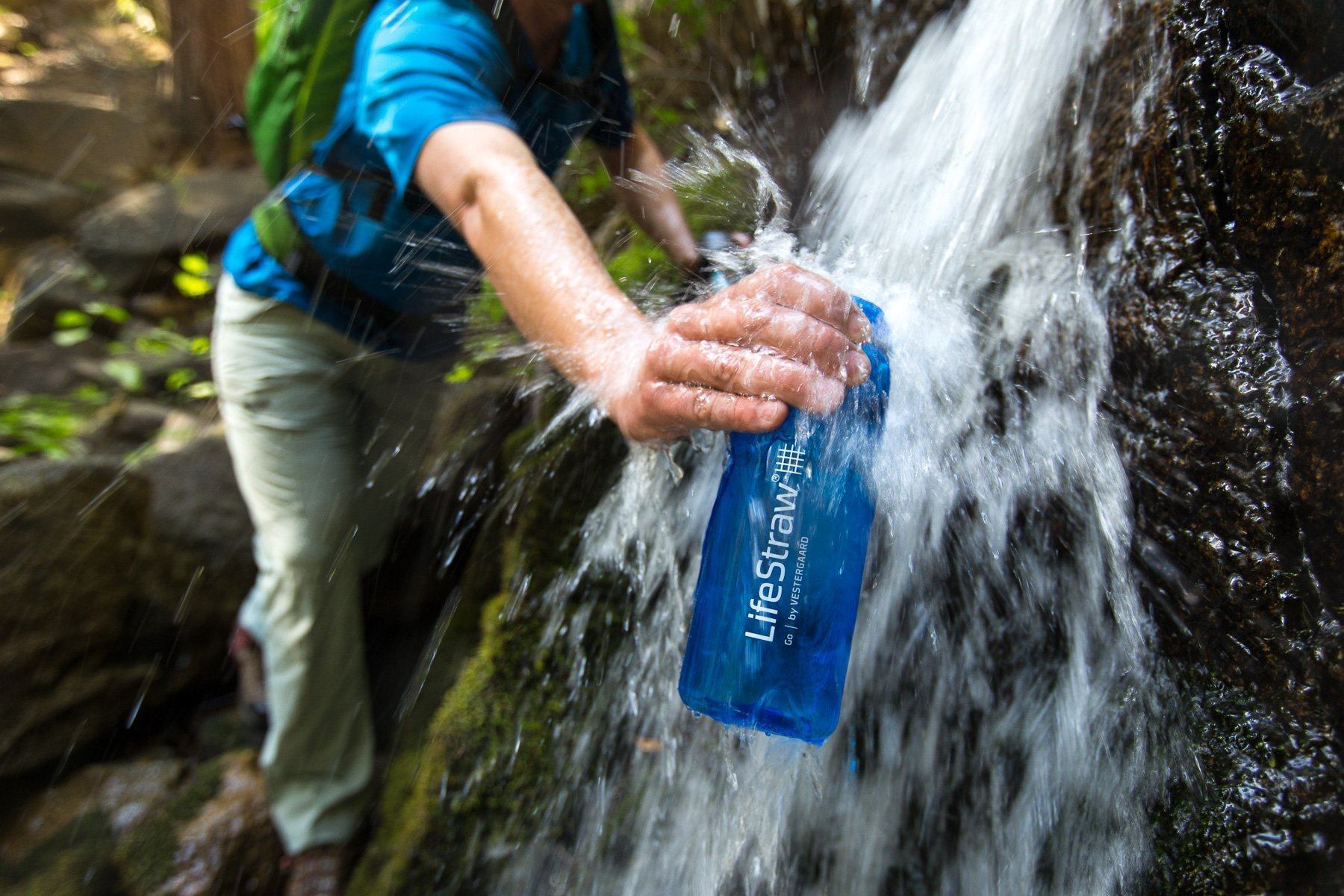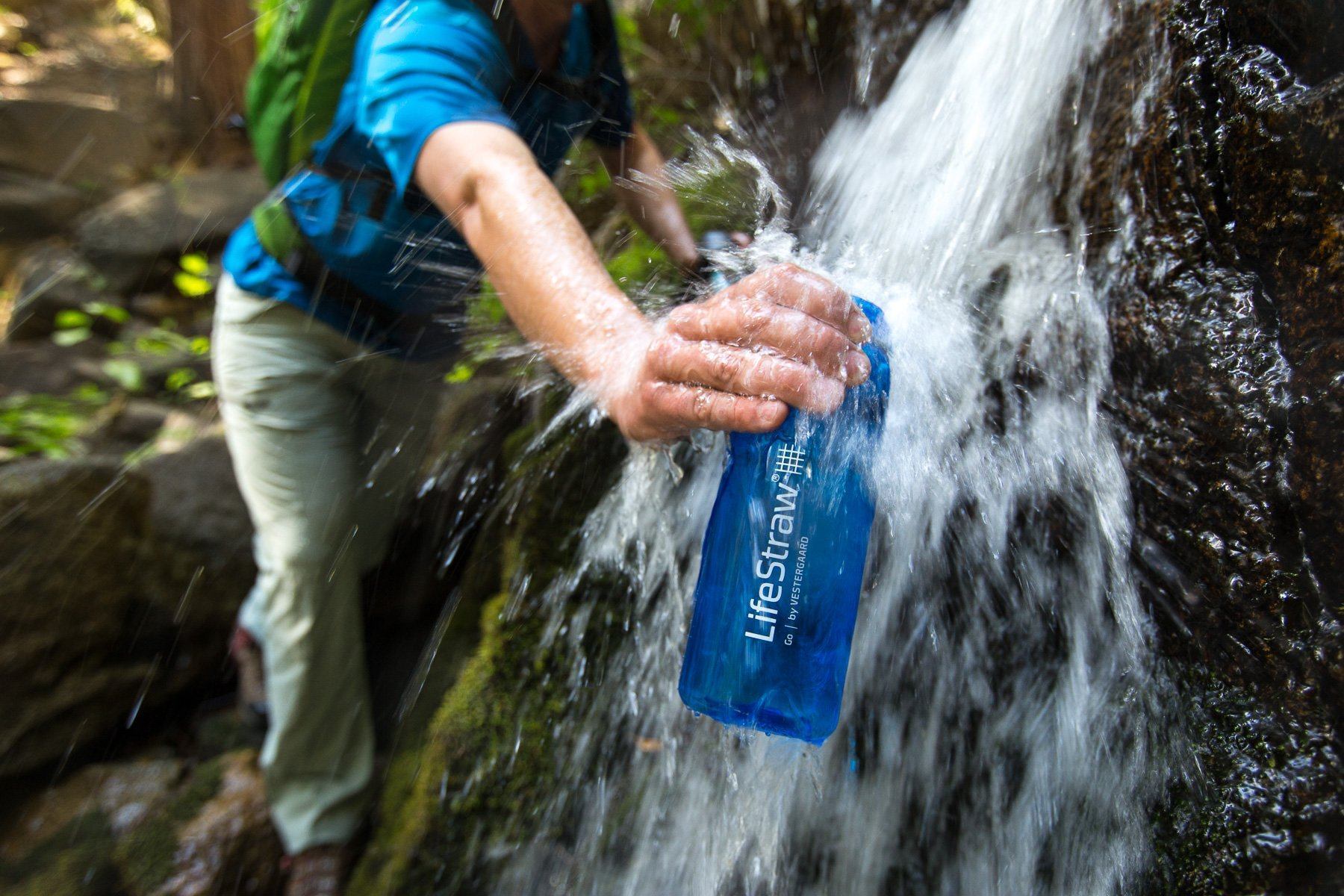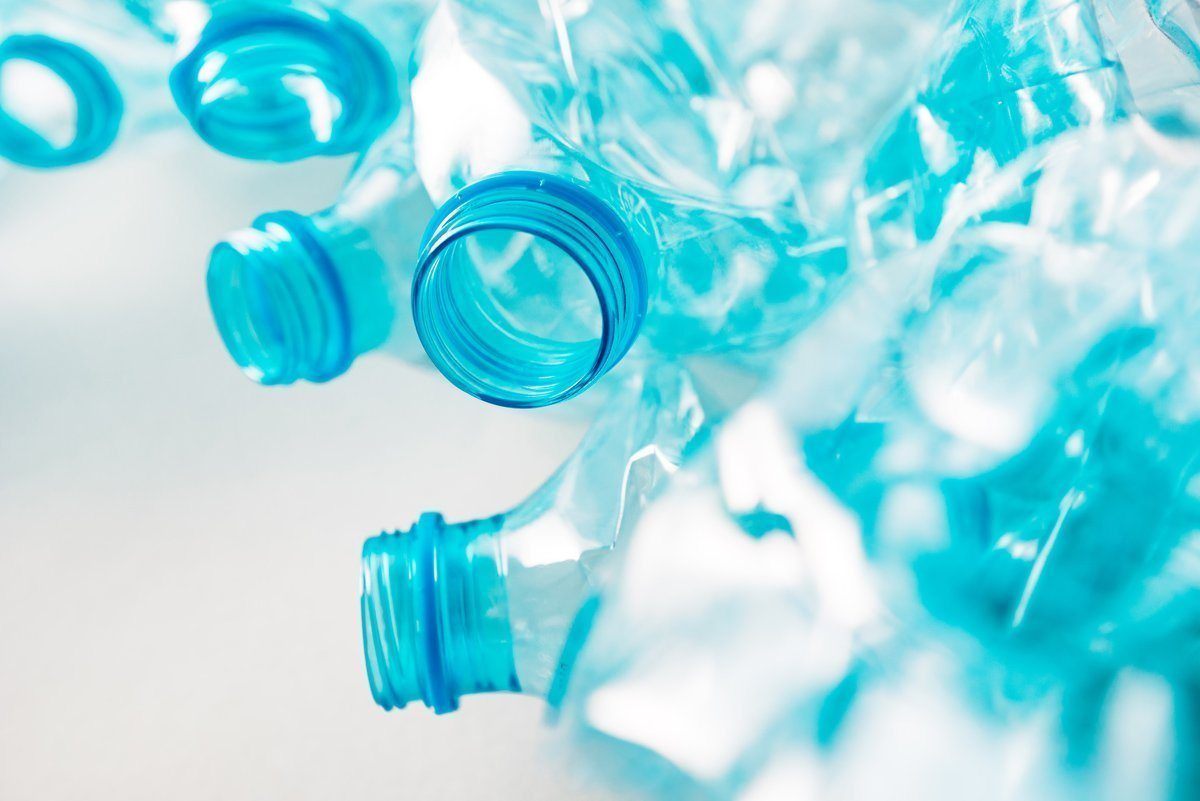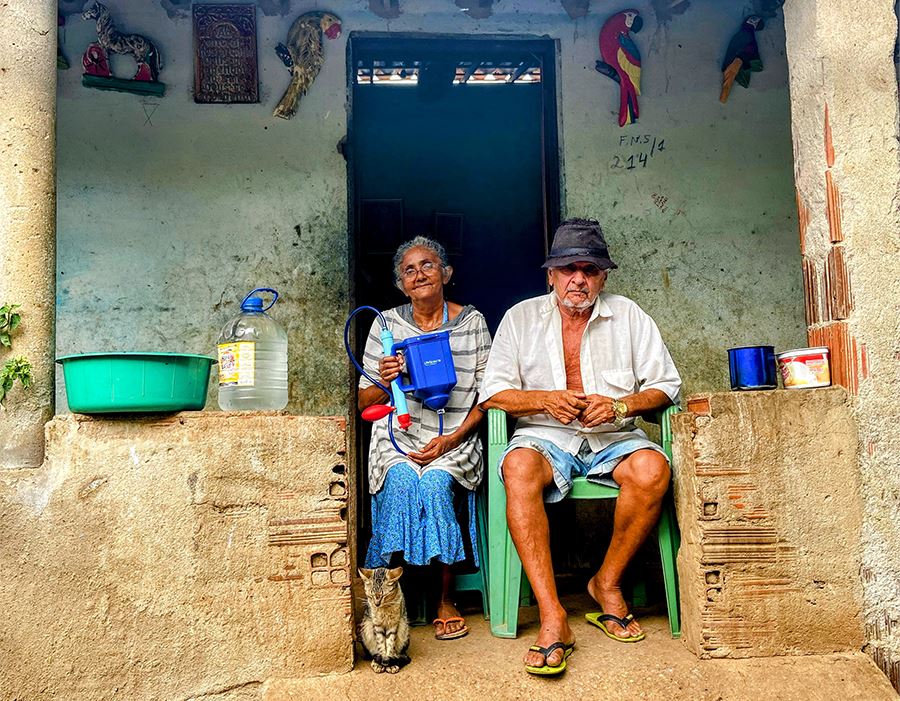
LIFESTRAW MID YEAR IMPACT REPORT - 2022
August 09, 22
In the wake of this year’s already unprecedented wars, humanitarian crises, environmental disasters, and continuing endless supply chain constraints – the LifeStraw team has worked persistently to deliver safe drinking water and other critical needs to communities across the globe. We highlight just a few of these initiatives below:
KENTUCKY FLOOD RELIEF
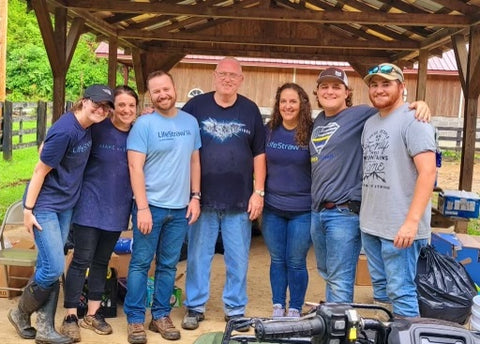
LifeStraw team members Katie Cox, Alison Hill and Zack Bloodworth supporting relief work in eastern Kentucky after devastating floods left the majority of the region without access to safe drinking water.
Just in the last week, LifeStraw partnered with the local USDA and several grassroots organizations and community organizers to distribute thousands of filters to people impacted by the recent devastating floods in eastern Kentucky. The floods and continued rains have destroyed homes and critical infrastructure – leaving communities without shelter, electricity or safe drinking water. Many of the municipal water lines have been completely washed out, and families are using springs, pool water and flood water for all their water needs. Several members of the LifeStraw team including our CEO, Alison Hill, traveled to eastern Kentucky to support relief efforts and provide filters and train families on their use. We are continuing to ship and distribute filters to the region and to date, have provided over $120k USD worth of product.
UKRAINE

Ukranian soldiers with LifeStraw Flex donations
Russia’s invasion of Ukraine has created one of the biggest refugee crises of modern times. More than 8.8 million refugees have since left Ukraine, while over seven million people have been displaced within the country. Russia continues to deliberately target civilians, residential buildings, hospitals and essential infrastructure, leaving many without adequate water, food and electricity.
To date, we have partnered with 14 different organizations, to ship 21,677 filters to Ukraine and bordering countries, reaching over 31,934 people with safe drinking – including internally displaced civilians, frontline workers and volunteers, and Ukrainian soldiers. This is an ongoing effort, and LifeStraw will continue to support local organizations to ensure access to safe drinking water.
SOUTH SUDAN

LifeStraw supplies on a boat being delivered to South Sudan
The devastation from the war in Ukraine reaches far beyond its borders. 3,000 miles away, South Sudan is suffering from the resulting global soaring food and fuel prices, and diminished funding to and support from organizations like the UN World Food Program (WFP). WFP has been forced to suspend food assistance for over 1.7 million people in South Sudan alone, due to funding shortfalls and reallocations.
South Sudan is also on the front line of climate change. An already fragile country roiled by conflicts since it gained independence from Sudan in 2011 – South Sudan has been suffering from unprecedented rainfall for almost three years. The resulting devastating flooding has submerged the surrounding lands, along with the farms and homes on it. The floods have affected 33 of the nation’s 79 counties, and more than 835,000 people have been impacted – many of whom are subsistence farmers and are now facing food insecurity and famine.
In immediate response to the severe flooding, we have distributed 382 LifeStraw household purifiers to some of the hardest to reach communities, in partnership with Alaska Health Project. We’re now working with AHP and local community members to implement longer-term, sustainable WASH solutions.
BRAZIL

A family the Sertão region of Brazil after receiving a LifeStraw Family filter
The Sertão, a vast desert region located in Northeast Brazil, has been greatly impacted by climate change. The area has suffered from decades of drought, and has very long (and worsening) annual dry seasons. The majority of the groundwater is too salty for consumption, and public water infrastructure is virtually nonexistent. Some households have cisterns or rainwater catchment systems, but the rainwater is not safe to drink without treatment. Additionally, most families’ livelihoods are dependent exclusively on agriculture (particularly cashew farming), which has also been severely impacted by droughts.
In January, in partnership with US nonprofit Gateway Outreach and local Missão Alcance, a team of LifeStraw staff traveled to the Sertão to distribute 438 LifeStraw Family to households and 5 LifeStraw Community to four local schools.
With the support of a University of Maryland graduate student, we also conducted a WASH needs assessment with 114 households and all four schools. The study found that 51% of families lacked access to any household water at least once per year; only 9.5% sufficiently treat their drinking water; and rates of diarrhea are high, especially during rainy season.
LifeStraw, Gateway Outreach and Missão Alcance, plan to scale up the school and household safe water program in 2023 – including a focus on climate resilient WASH programming like improved rainwater harvesting.
MEXICO

A member of LifeStraw partner, Solidarity Engineering handing out LifeStraws and hygiene kits to migrants near the Mexico border.
At any given time, thousands of people are journeying north across Mexico, from their home countries in Central America, as well as Haiti and across Africa, to seek asylum in the US. The majority are fleeing to escape high rates of violence, gangs, drug trafficking, political insecurity, food insecurity and extreme poverty. Increasingly, much of the displacement is also driven by climate change.
The 2,000-3,000 mile trek is arduous and incredibly dangerous. Women and girls are at even higher risk for violence, rape, kidnapping and illness. Add to that, many face significant hygiene deprivation, including lack of access to basics like clean water and menstrual hygiene management. Children along the migrant trail, who are often already malnourished, are at higher risk for waterborne disease from lack of access to safe drinking water.
In response to the ongoing refugee crisis in Mexico, LifeStraw has partnered with several organizations, to distribute filters and ensure access to safe water. We donated 1,000 personal filters to Green Valley-Sahuarita Samaritans, who provide safe water and other essentials to asylum-seekers crossing the Sonoran Desert. We also donated 350 personal filters to Solidarity Engineering, which were distributed along with hygiene kits to asylum seekers in Tapachula – the main receiving city for refugees on the southern border of Mexico, where asylum seekers often wait for months while their paperwork gets processed to continue on.
After conducting interviews with migrants at the US border, it is evident that many have critical needs long before they enter Mexico – specifically through the Darien Gap, an extremely treacherous journey through dense jungle between Panama and Colombia.
Migrants stated that “if water filters were provided before hiking through the Darien Gap, it would save lives”.
LifeStraw will be supporting Solidarity Engineering’s initiative to provide water filters, hygiene kits and other supplies to migrants beginning their journey through the Darien Gap.
We are actively fundraising to provide safe water to as many families as possible – if you would like to support, please DONATE HERE.
NAVAJO NATION

A member of Navajo nation receiving a LifeStraw Home water filter + training.
Water insecurity for indigenous communities across the United States is complex and vast. 500 abandoned uranium mines remain, which seep into drinking water leading to morbidities like cancer. Unregulated water sources, like wells, are prone to microbiological contamination, increasing the risk of waterborne disease. 40% of Navajo families lack piped water. Some purchased bottled water, which consumes tight budgets and results in excessive waste. But for many, the costs of bottled water are prohibitive. Many families haul water from far, unsafe sources like the contaminated wells; and often, they have small barrels, requiring multiple trips. Some families, particularly elders, have no reliable transport at all to retrieve water.
Today’s indigenous water crisis is rooted in colonialism and has been perpetuated by structural racism. Communities have persisted through efforts by the US to decimate their peoples and land, which has led to pervasive distrust, including of any marked “safe” water. Many families who do have piped water do not trust it enough to drink.
In June, LifeStraw, in partnership with local community nonprofit, Rez Refuge, launched a scale-up of our Youth-Led Safe Water Project. Rez Refuge has recruited six local youth, who are leading implementation of the program – including identification of high-risk families, promotion of the importance of safe water, and distribution and training of LifeStraw household purifiers and handwashing stations. The team has developed a safe water curriculum that centers Navajo culture, and brings stories and traditions around water to life.
HUMANITARIAN DISTRIBUTION OF OUR NEWEST EMERGENCY PURIFIER, LIFESTRAW MAX

School children in India accessing water from a LifeStraw Max after being installed in their school
LifeStraw’s newest product, the LifeStraw Max – a highly portable purifier designed specifically for low-resource and humanitarian settings – is now providing safe drinking water to communities across the world. It instantly purifies source water at a rate of up to 150 liters per hours, without the need for electricity, batteries or chemicals.
Since it’s launch earlier this year, the purifiers has already provided safe drinking water to tens of thousands of people facing water insecurity. Below are just a few highlights:
- Haiti: LifeStraw, in partnership with non-profit Unlocking Communities, has distributed 10 Max purifiers to local schools and to communities impacted by recent earthquakes.
- Ukraine: LifeStraw has shipped 10 Max purifiers to provide safe drinking water to over 6,000 people impacted by the war.
- India: In partnership with Tata Trust, LifeStraw has piloted a village-level project with the Max to provide safe drinking water where 1,000s of people gather to collect water for households.
- Philippines: LifeStraw has distributed Max, as well as household purifiers, to families impacted by the recent typhoon.
- Myanmar: Backed by UNICEK and several local non-profits, LifeStraw is implementing the Max across the country to provide safe drinking water at the village level, and for disaster preparedness and mitigation in schools and hospitals.
LOCAL BALTIMORE YOUTH-LED MURAL PROJECT

Local communities members admiring the new mural by local artist LaToya Peoples.
The LifeStraw Baltimore Team supported the design, painting and community-unveiling event of a community mural at Robert C. Marshall Rec Center in west Baltimore – in partnership with nonprofit Jubilee Arts and local artist LaToya Peoples. The mural design features a youth surrounded by community in the form of hands pouring from Calabash, a gourd used to make pottery around the world. The flowers (Dahlia, Phylox, Lupinus, and White Orchid) symbolize safety, love, community and imagination.
LOCAL VOLUNTEERISM AND COMMUNITY ENGAGEMENT
Giving back is central to LifeStraw as a company and extends far beyond our safe water programming. Throughout the year, LifeStraw employees are encouraged to volunteer within their local communities and are provided one day of paid leave per quarter to give back. So far in 2022, LifeStraw staff have planted trees, painted murals, planted vegetables in community gardens, supported jigger campaigns, volunteered at and provided donations to schools and orphanages for students with special needs, and much, much more. Below are just a few highlights.
The LifeStraw Vietnam Team organized a donation day to collect candy, cake, warm clothes, books and more to donate to highland children in partnership with nonprofit E2K. They also prepared and served 160 lunch boxes of Pho to low-income patients with cancer in Tan Trieu Hospital in Hanoi.

Members of the LifeStraw Vietnam team preparing lunch for low-income hospital patients.
Elizabeth Oside of western Kenya, volunteered at Kuywa Special School, which houses and educates students with special needs. Children are taught a range of skills, including dress making, knitting, embroidery, bangle-earring making. Elizabeth helped to weave a floor mat. Elizabeth also worked with local teenage girls to provide training and education on income generation, the importance of school, reproductive health and how to prevent unwanted pregnancies, and more.
Vincent Ajuoga, Vincent Ashiundu and Julie Ochieng of Kenya, participated in the celebration of International Women’s Day. They donated and trained on the use of household filters and anti-malarial mosquito nets, and shared motivational speeches to young mothers living with HIV/AIDS.

Members of the LifeStraw Kenya Team celebrating International Women's Day
Vincent Ajuoga also participated in the celebration of World Malaria Day by donating and promoting the use of PermaNet pretreated mosquito nets as a means for malaria protection.
The Bungoma Area Team in western Kenya planted 50 trees at the N’Goli Dispensary in Bumula Sub-County – a facility that serve an average of 70 clients per day. The compound previously had no trees to provide shade for patients waiting in the strong sun. The Grevillea Robusta tree provides shade, acts as a windbreaker, improves soil fertility and doesn’t require a lot of water.

Members of LifeStraw's team in Bungoma Kenya after helping to plant trees at a local health facility.
Patrick Sungu of western Kenya participated in a jigger eradication event at Mahemas Primary School in Lugari Sub-County. The campaign supported the cleaning and treatment of students suffering from jiggers, as well as disinfection of the area.
Patrick Muteshi of western Kenya participated in a tree planting event at Emulole Primary School, in Khwisero Sub-County.
A large team from LifeStraw’s Kenya offices visited Free2Be Children Home in Bungoma South Sub-County. This program helps to get children off the streets and provides education, housing, food and other resources. The team installed two LifeStraw Community water purifiers; delivered food, clothing, sanitary pads, a generator, and bedding items; and provided mentorship.

Vincent Ajuoga hands out mosquito nets and the local western Kenya team provides additional resources to a local children's home.
Dorice Chengo of western Kenya donated clothes and beans to people living with HIV/AIDS, and provided education on the benefits of drinking safe water when they are living with HIV/AIDS. She also participated in cleaning of Khwisero Market and Sub-County Hospital, and supported a tree planting event on Widow’s Day.
Bernard Otunga of western Kenya, is a water engineering professional, and has supported his local community through free water pump repairs, springs protection and expertise on permanent water solutions for schools, health facilities and the community at large.
The LifeStraw Nairobi Team visited St. Luthmer Children’s Home to donate food and other supplies, and prepared, cooked and served the kids lunch.
Julie Ochieng of western Kenya worked with local social workers and an NGO to help three orphaned siblings living with disabilities to get accepted into a private children’s home. They are now well fed and housed, happy and provided needed resources like wheelchairs and rehabilitation services.
The Baltimore Team partnered with local nonprofit Moveable Feast to prepare 2,410 nutritious meals for Maryland residents facing poverty, food insecurity and chronic illness.
SUSTAINABILITY

A look at the LifeStraw Home testing lab where water recycling is being implemented.
LifeStraw has completed a comprehensive 2021 greenhouse gas (GHG) emissions audit in partnership with climate experts from Climate Positive Consulting. We are in the process of completing our annual Climate Neutral certification to offset all 2021 GHG emissions – offsets will support the Mai Ndombe REDD+ Project, which protects 300,000 hectares of critical bonobo and forest elephant habitat within the world’s second-largest intact rainforest and some of the most important wetlands of the planet, the Congo Basin. This project reduces the principle drivers of forest and biodiversity loss and is paving a new pathway for community prosperity through comprehensive investments into the surrounding local communities, which are among the least economically developed in the world.
LifeStraw, in partnership with the Outdoor Industry Association Climate Action Corps, has also committed to becoming climate positive by 2030. This means a reduction of company-wide greenhouse gas emissions in line with science-based targets that addresses all scopes, removes even more GHG from the atmosphere than you emit, and advocates for broader systemic change. LifeStraw has set science-based targets for reduction, and is working to develop a roadmap to reach these lofty goals.
The LifeStraw Water Lab in Vietnam has already begun to implement improvements to be more environmentally-friendly and reduce GHG emissions. This year, they created an automatic testing system, which reduces both the need for human resources as well as electricity. It is estimated that this new system will save about 1600kW annually.

